#narrative over aesthetics for this one.
Photo
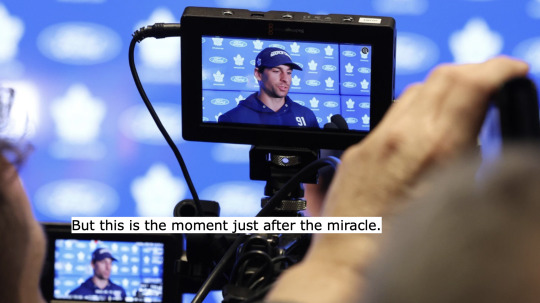

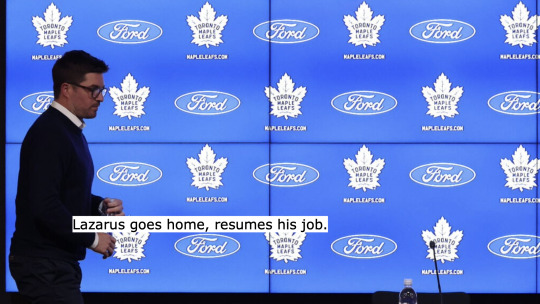
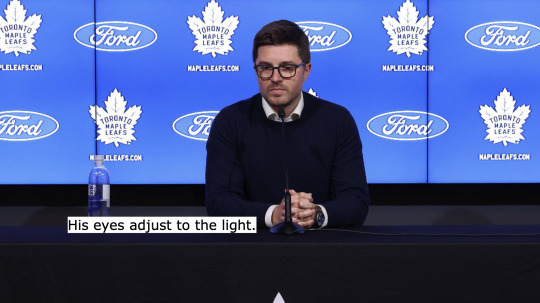

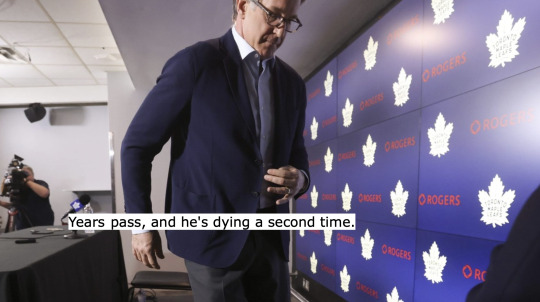
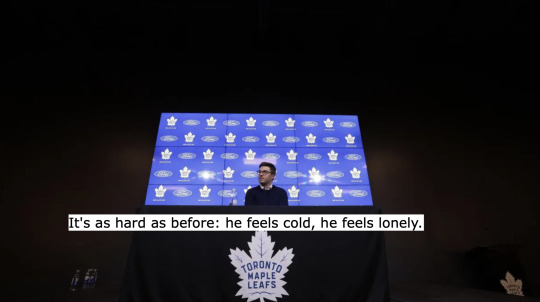

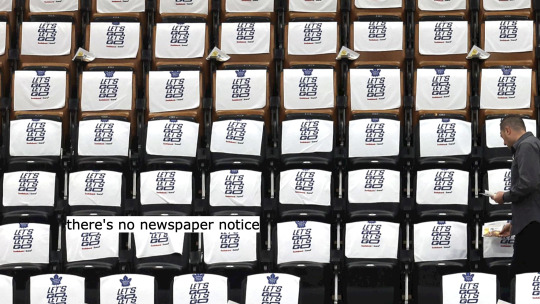
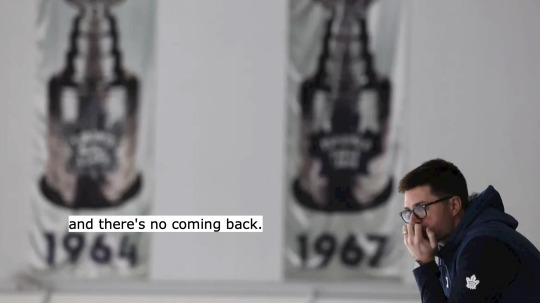
― Teju Cole, Blind Spot
Hockey Poetry Post 31/?
(Photo credit: Steve Russell, Steve Russell, Steve Russell, Steve Russell, link, Jack Boland, Steve Russell, Steve Russell, Steve Russell, Steve Russell)
#okay just a quick one In Light Of Recent Events#toronto baby what are you doing#I found the dubas presser interesting and thought touching on the fact that The Job Is Hard and affects his family life is entirely fair#but ok im not a team owner I guess they see things differently#narrative over aesthetics for this one.#but ok#hockey poetry posts#toronto maple leafs#kyle dubas#can the pens pls have him if u guys dont want him that'd be cool
169 notes
·
View notes
Text
Pixar's short movie "Kitbull" (2019) has a more intricate moral and philosophical framework around the nature of evil than 85+ years of Batman comics and i think the vicious and mind-numbingly boring pattern of Batman and Joker's cyclical push-and-pulls can affectively be broken by joker getting the pitbull treatment, in this essay i will
#listen i went through 15 years of batman comics in the morning before breakfast#and it's.... astonishing#how DC writers try to stretch themselves toiler paper thin over the surface level aesthetics of Batman stories#but almost never break the common narrative structures around this bastard#and it especially feels bleak when it comes down to his connection with Joker#like by the love of GODS. it's 2024#tell me something new#if i have to read one more canon ''Joker loves Batman and Batman hates him'' story i'll start swinging#canon is soooo dead
3 notes
·
View notes
Text
You know... watching a tv show via a streaming service really kinda... makes you realize how much the art of it is constrained by the medium; specifically ad breaks
Like, they actively disrupt the flow of things because they need a chance to insert commercials, and even if you're not watching it with commercials, there's something forever built in to the timing of the show that's specifically for those commercials
The entire pacing of the show is forced to be warped around it and it's not like that can every be changed cause... show's been shot
Just kinda sucks you know? That cause of toyota or pepsi or all the other pricks who gotta run the ads, a whole lot of shows (good and bad) have ended up having to build in this concession
No grand narrative here, it's just a little bit ass
#I know I sometimes talk about this thing that I've picked up with writing which I refuse to infect anyone else with#this secret aesthetic rule that ever since I noticed I can't unnotice it and it's just a pain in the ass extra layer to think about#well I'll say that this post has very nicely conformed to what I'm looking for#I'm over all quite pleased... my one complaint is if only I could find a way to make that last sentance end around 'have'#that's the length I'd want it; but getting the words across always has to come first#...but this is why I don't share what's going on in my head here#cause I don't want anyone else to be sitting their writing and thinking#can I shorten 'There's no grand narrative I have here; I just think it's kinda ass'#down to that first 'have' while still keeping the meaning similar?#cause I'm about to give it a thought because that would make this post so much better...#hmm... yes; I did it and I think I managed to keep a similar meaning and now it's much better... though...#maybe if I lengthen the previous paragraph just a little that would be a smidge better#looks very nice now; what a huge waste of time; this is why I don't tell you what I'm trying to do#once I saw it as important I couldn't unsee it; a post mentioned it#you probably wouldn't get as focused on it; but like... let's just not contaminate you#and it's not like some fun conspiracy forbidden knowledge#it's just a dumb aesthetic choice I've started caring about#mm tag so i can find things later
2 notes
·
View notes
Text
I have never understood the (absolutely correct) pleas of "FOR THE LOVE OF GOD STOP PUTTING FLASHING IMAGES IN THE EPILEPSY TAGS" more than every time I enter the derealization tag and am just flooded with nothing but unreality ~aesthetics~
#MY DISORDER ISNT A FUCKING AESTHETIC YOU ASSHOLES#ANY SOLACE OR RESOURCES OR COMFORT IS BURIED BENEATH DOZENS OF UNREALITY SHIT THAT ONLY TRIGGERS ME FURTHER#AND I LOVE UNREALITY AND LIMINAL AESTHETICS BUT COME THE FUCK ON PEOPLE#UNREALITY =/= DEREALIZATION. HOW MANY TIMES MUST WE GO OVER THIS.#UNREALITY SHOULD BE TAGGED FOR THOSE WHO SUFFER FROM DEREALIZATION AND OTHER DISORDERS THAT MAKE DISCERNING REALITY DIFFICULT AND DISTRESSI#derealization#actually dissociative#BOIL DOWN MY DISORDER TO A FUCKING ~AESTHETIC~ OR HORROR NARRATIVE ONE MORE TIME I FUCKING DARE YOU#vent#rant
3 notes
·
View notes
Text
tight knit | charles leclerc social media au
pairing: charles leclerc x reader
spa 2021, where a knitting hobby comes in handy
yourusername
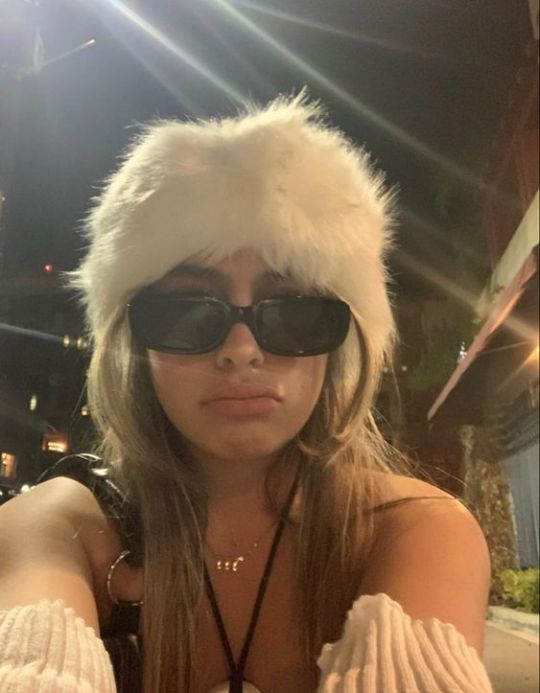

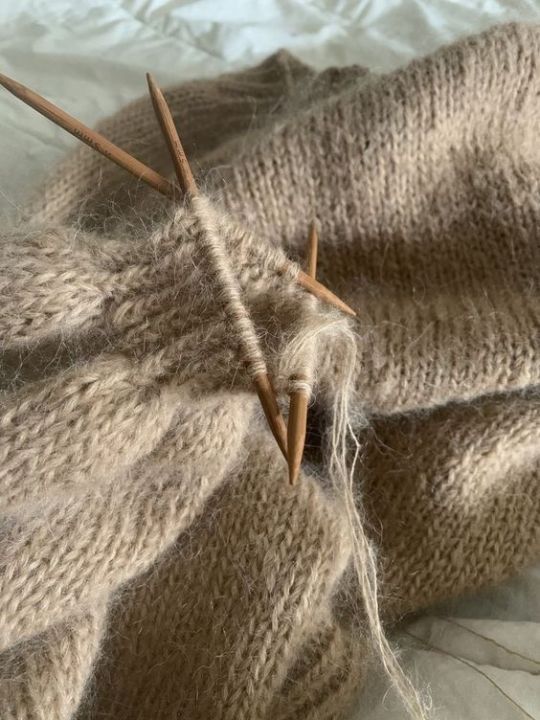
liked by scuderiaferrari, charles_leclerc and 401,874 others
tagged: charles_leclerc
yourusername: hello spa !! one of my fave tracks and i'm so excited for this weekend AND for those who asked, here's my current project, it's a sweater :)))))))
view all comments
user1: oh to receive pics of charles like that
user2: i love how she's like here's my fine ass bf but more importantly here's my update on my knitting
danielricciardo: is the man on the second slide single?
yourusername: HE'S MINE BACK OFF (p.s. i love you dan, but don't joke about that shit i have approximately 200 teenagers in my dms threatening violence everyday over him)
charles_leclerc: cherie, i didn't know that :(
yourusername: i'd fight all of them and more for your hand
charles_leclerc: my knight in shining armour
danielricciardo: okay i was trying to make a joke, it was not an invitation to prove how in love you guys are we get it
user3: i too wish i had a bf rich enough that i could travel and knit full time
pierregasly: have a day off for once
yourusername: keep on like that and you'll never get that panda
pierregasly: but you promised !!!!!
yourusername: be nice then
charles_leclerc

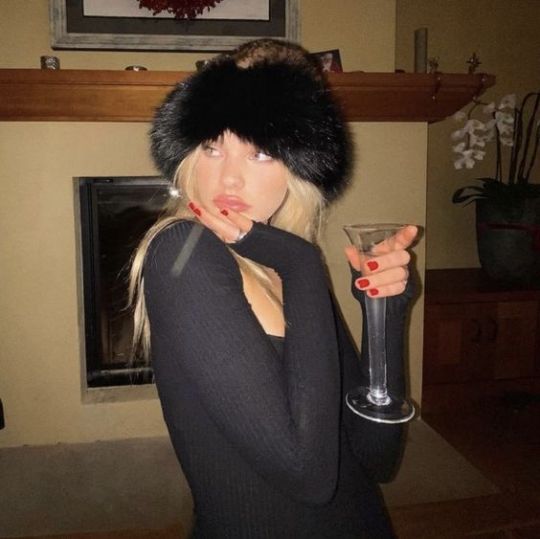
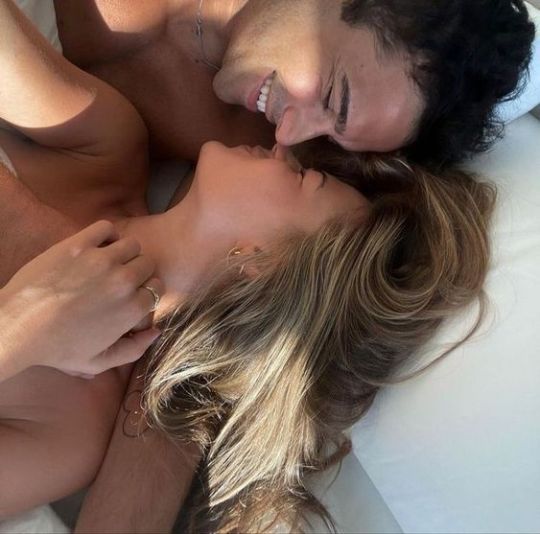
liked by pierregasly, yourusername and 1,208,760 others
tagged: yourusername
charles_leclerc: calm before the storm at spa
view all comments
user4: now where does y/n get all of these cut head accessories?
yourusername: vinted babes
user5: we love a thrifty queen
user6: storm meaning driving the ferrari shit box
yourusername: wow you look great, banishing me to the row behind you just to take this photo was defo worth it
charles_leclerc: you were there for two mins max then you sat with me stop these false narratives
yourusername: lies it was five minutes cause you didn't like the angle
charles_leclerc: i want to look handsome is that too much to ask
yourusername: you're always pretty baby
user7: can they stop like i am so lonely i can't see this
carlossainz55: let it be known that the only way charles can beat me in chess is with y/n's help
yourusername: nooooooo i never helped i was knitting
charles_leclerc: i wasn't cheating !! y/n was just being nice to me
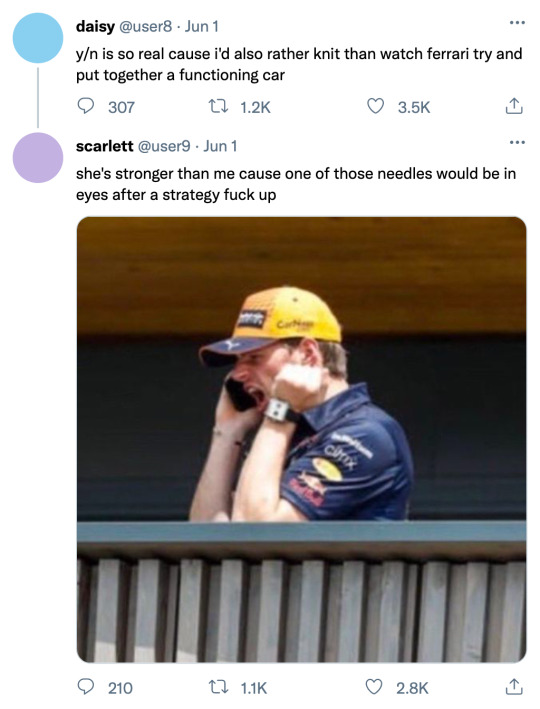
f1

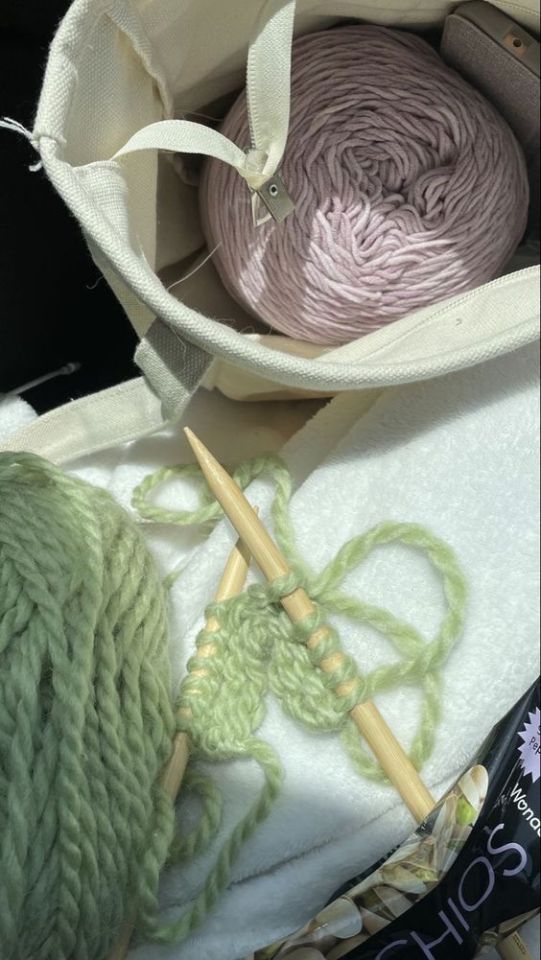
liked by scuderiaferrari, charles_leclerc and 708,954 others
tagged: yourusername
f1: well, that's one way to spend qualifying's red flag. y/n y/ln spent her time in the ferrari garage working on her knitwear.
view all comments
user10: she said in her spa post it's a jumper i hope it's for charles
yourusername: it is, lord knows that boy needs all the help he can get in the wardrobe department
charles_leclerc: rude !!!! you never say anything
yourusername: you're always so proud i can't tell you it's bad
charles_leclerc: life ruined
yourusername: but you're so pretty no one cares about your criminal trouser collection
charles_leclerc: back handed compliment, but a compliment nonetheless
user11: she's so unbothered i love her
alexalbon: okay but when is my jumper coming @yourusername i ordered it last month
yourusername: it's coming i swear !!!
alexalbon: you let charles skip the line again didn't you
yourusername: maybe ...
yourusername
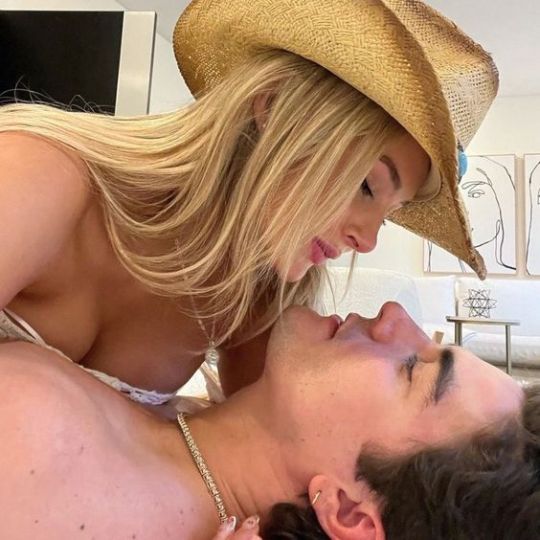
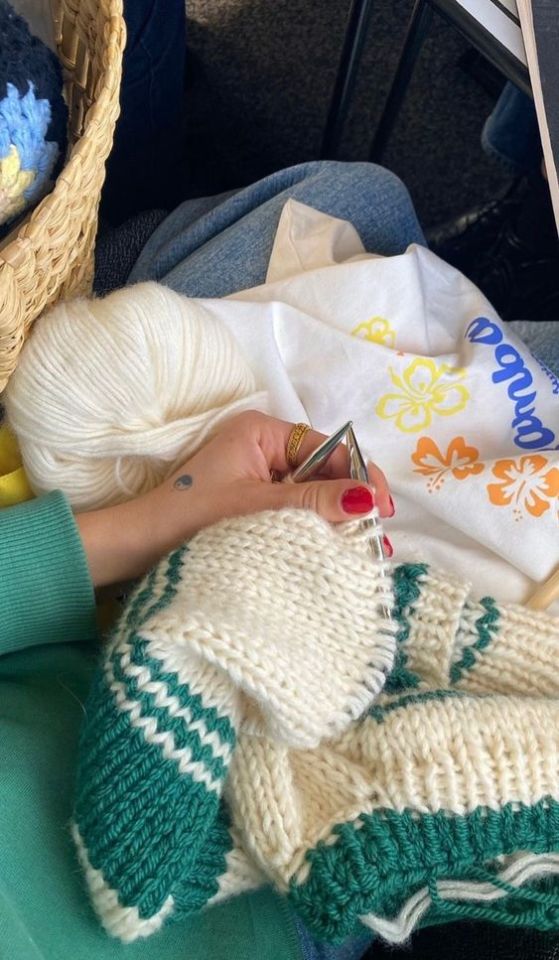
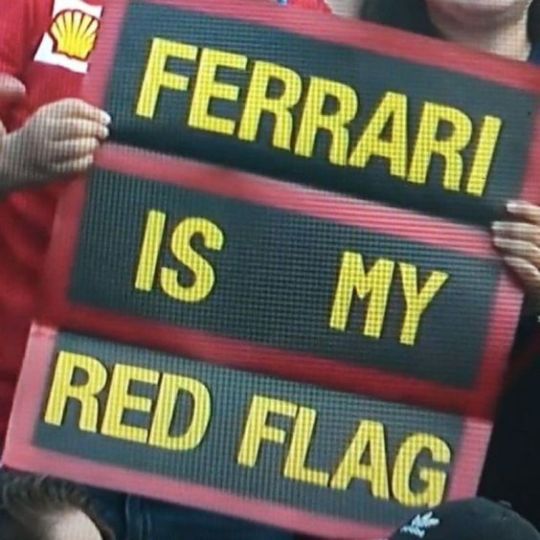
liked by lilymunhe, charles_leclerc and 481,056 others
tagged: charles_leclerc
yourusername: hoping for a drier sunday, drowned rat is definitely not my aesthetic
view all comments
user12: the first picture i am going to rip my skin off
charles_leclerc: is this the appropriate time to say save a horse ride a cowboy?
pierregasly: this is why ferrari is a red flag
yourusername: howdy
pierregasly: you people are gross
charles_leclerc: you talk about ur dick at any give opportunity
yourusername: and no one actually calls you tripod
user13: damn.... couples that drag together stay together
pierregasly: ok. i will refrain from talking about your sex life publicly.
user14: i love that y/n posts about knitting just as much as she posts about charles.
yourusername: charles is the side chick
charles_leclerc: it's true i've been told to roll over in bed to make more room for the yarn
f1wagsupdates
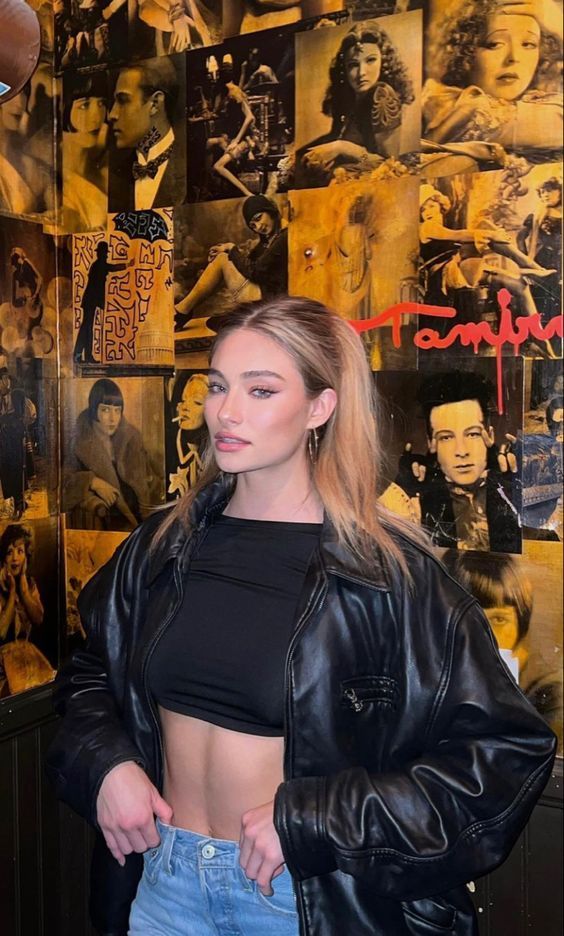
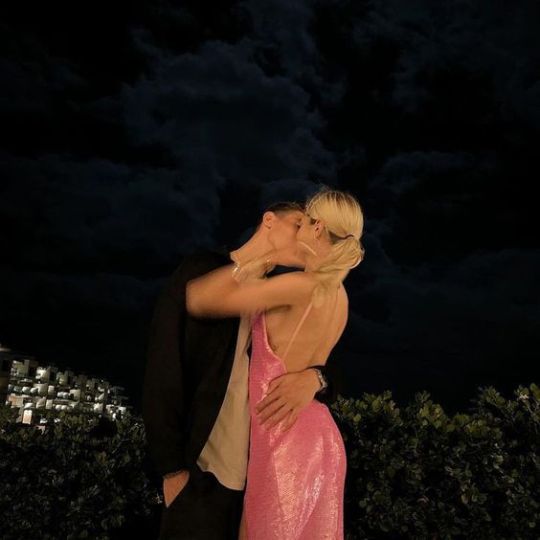
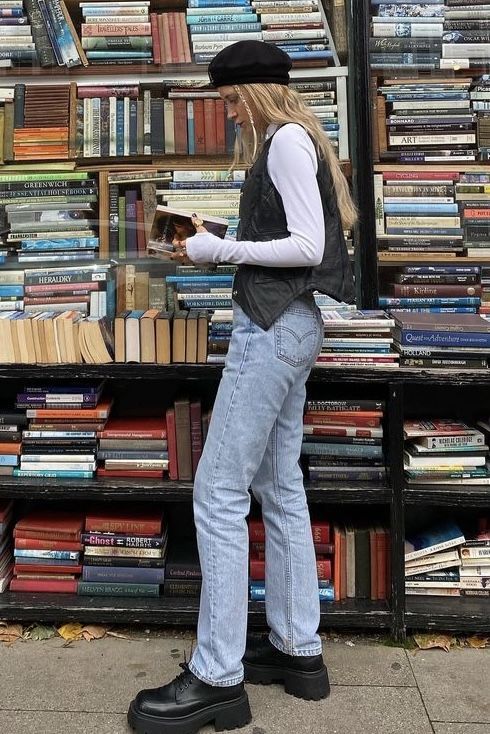
liked by user15, user16 and 2,304 others
tagged: yourusername
f1wagsupdates: appreciation post for my favourite wag !!
view all comments
user17: i want to be her when i grow up
user18: i need her hair care routine asap
user19: can we stop putting these women on a pedestal for like no good reason?
user20: usually i'd agree but y/n has nothing but kind and a good role model, so if you idolise one wag it might as well be her
user21: her style is so underrated
user22: i need the jacket in the third slide
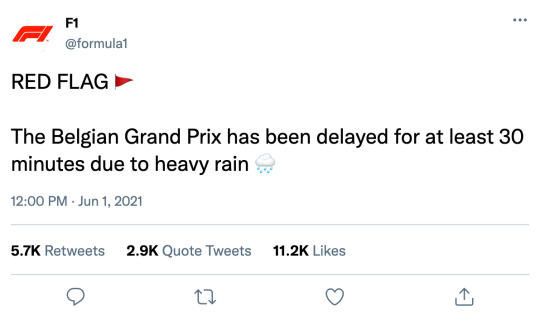
scuderiaferrari

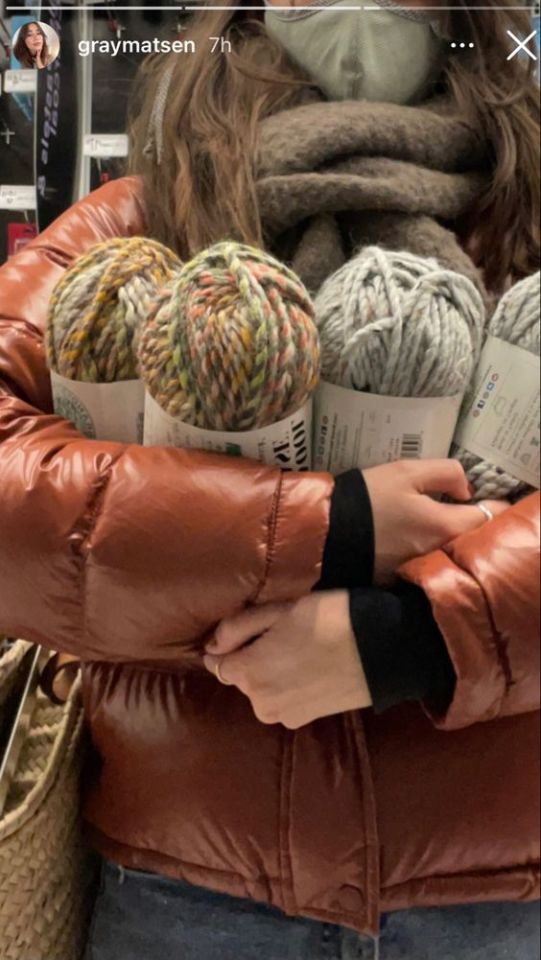
liked by carlossainz55, yourusername and 770,984 others
tagged: yourusername, charles_leclerc
scuderiaferrari: there's two types of people during a red flag at spa
view all comments
user23: they're so precious to me
charles_leclerc: i wish i could relax that much in the ferrari garage
yourusername: i am not relaxed, i am actually the most stressed, i just hide it well
charles_leclerc: maybe we'll confiscate the needles for the actual races
yourusername: probably the only wise strategy in that garage
user24: i love how y/n keeps going for ferrari's neck and charles just can't reply
carlossainz55: it's so cold can i get my christmas jumper order early @yourusername ?
yourusername: that's a big queue to skip chilli i'm not sure i can comply with that
carlossainz55: if i changed my name to charles would this change?
yourusername: maybe 🤔
user25: the sky camera is obsessed with her and i am exactly the same thank you for the content
yourusername
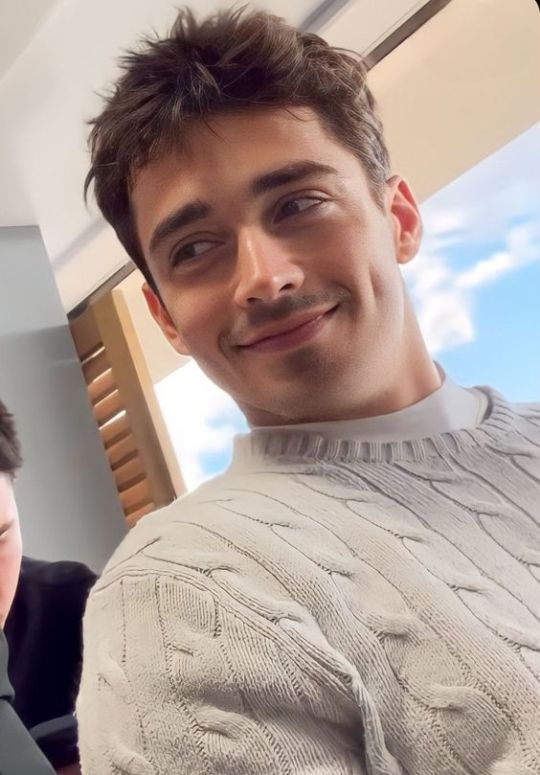
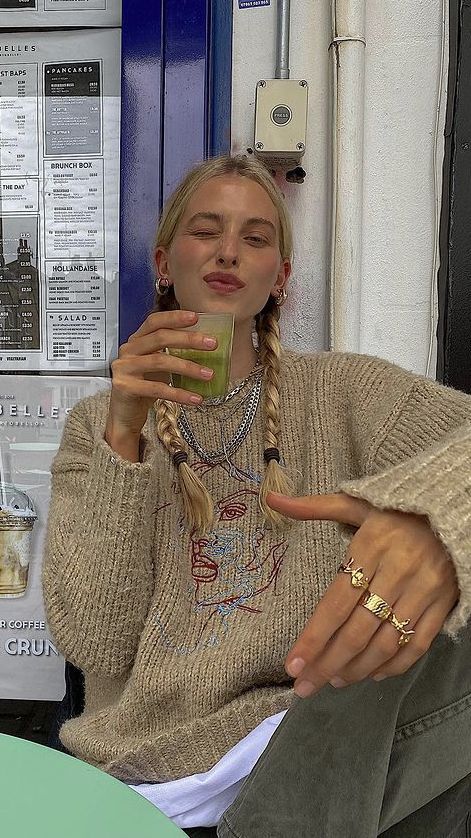
liked by oscarpiastri, charles_leclerc and 508,673 others
tagged: charles_leclerc
yourusername: it's a bit cold in spa so charlie's new jumper (just finished) is coming in handy straight away
view all comments
user26: LORD PLEASE I HAVE SEEN WHAT YOU HAVE DONE FOR OTHERS
user27: okay this is cute and all, but DAMN that jumper is so fucking cute y/n is so talented
charles_leclerc: i think the phrase is: came in clutch
yourusername: you're welcome baby
charles_leclerc: i retract my previous statement about confiscating the knitting needles and i will give up more space in bed for the yarn if this is what i get
yourusername: not us having a polyamorous relationship with KNITTING
user28: so like i need y/n to open up a shop
alexalbon: i hope mine comes next
yourusername: i'm on it already albono
lilymunhe: on his jumper or the one for me that he asked for
yourusername: yours obvs
alexalbon: mugged off again
charles_leclerc
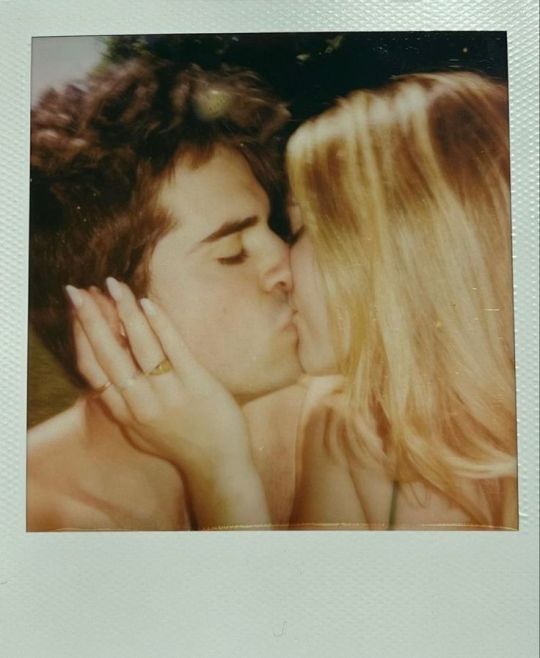
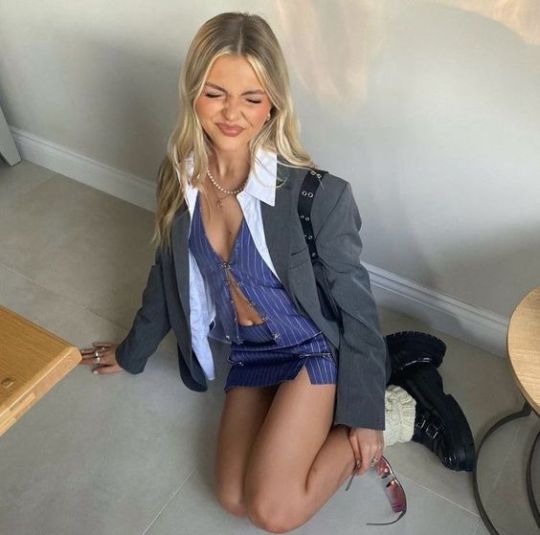

liked by landonorris, yourusername and 1,409,874 others
tagged: yourusername
charles_leclerc: words cannot describe how much i love you (and your knitting). as george would say i am snug as a bug in a rug and it's all thanks to you
view all comments
user29: SNUG AS A BUG IN A RUG CHARLES WHO ARE YOU
yourusername: can they start the race so we can go be snug as a bug in a rug back at the hotel?
charles_leclerc: omw to the fia hq rn
yourusername: thanks baby
georgerussell63: i thought this was my job but thanks charles i guess
charles_leclerc: man of the people and the cuddles
user30: lord i am so lonely
danielricciardo: y/n x enchante collab when?
yourusername: coming to mclaren rn
charles_leclerc: so my cuddles mean nothing?
yourusername: have you seen this man's pricing we'll be rich baby
charles_leclerc: we are rich baby
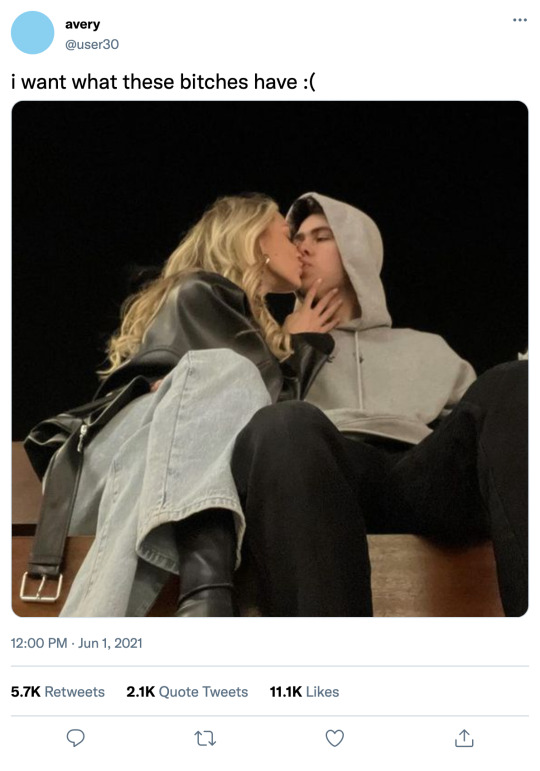
note: pls enjoy, requests may take a while cause your girl managed to break her finger lol
#f1 imagine#f1 x reader#f1 instagram au#f1 x you#f1#charles leclerc imagine#charles leclerc x reader#charles leclerc#charles leclerc instagram edit#charles leclerc instagram au
3K notes
·
View notes
Text
In photos of 2023’s World Economic Forum- or Davos as it is commonly called, after the Swiss resort town where it annually occurs- you might not notice the HEPA filters. They’re in the background, unobtrusive and unremarked upon, quietly cleansing the air of viruses and bacteria. You wouldn’t know- not unless you asked- that every attendee was PCR tested before entering the forum, or that in the case of a positive test, access was automatically, electronically, revoked. And if you happened to get a glimpse of the strange blue lights overhead, you could reasonably assume that their glow was simply a modern aesthetic choice, not the calming buzz of cutting edge Far UVC technology- demonstrated to kill microbes in the air.
It’s hard to square this information with the public narrative about COVID, isn’t it? President Biden has called the pandemic “over”. The New York Times recently claimed that “the risk of Covid is similar to that of the flu” in an article about “hold outs” that are annoyingly refusing to accept continual reinfection as their “new normal”. Yet, this week the richest people in the world are taking common sense, easy- but strict- precautions to ensure they don’t catch Covid-19 at Davos.
These common sense, easy precautions include high-quality ventiliation, use of Far UVC-lighting technology, and PCR testing. You’ll also see some masks at Davos, but generally, the testing + air filtration protocol seems to be effective at preventing the kind of super-spreader events most of us are now accustomed to attending.
It seems unlikely to me that a New York Times reporter will follow the super-rich around like David Attenborough on safari, the way one of their employees did when they profiled middle-class maskers last month. I doubt they will write “family members and friends can get a little exasperated by the hyper-concern” about the assembled Prime Ministers, Presidents and CEOs in Switzerland. After all, these are important people. The kind of people who merit high-quality ventilation. The kind of people who deserve accurate tests.
Why is the media so hellbent on portraying simple, scientifically proven measures like high-quality ventilation as ridiculous and unnecessary as hundreds of people continue to die daily here in the US?
Why is the public accepting a “new normal” where we are expected to get infected over and over and over again, at work events with zero precautions, on airplanes with no masks, and at social dinners trying to approximate our 2019 normal?
We deserve better. We deserve to be #DavosSafe as the hashtag going around on twitter puts it. Your children deserve to be treated with the care that world leaders are treating each other. Your family deserves to be protected from the disease which is still- unlike the flu- the third leading cause of death in the US. We don’t deserve to be shoved back into poorly ventilated workplaces while our politicians and press assure us that only crazy people would demand to breathe clean air.
Clean water and clean food are rights we fought for; we have regulatory bodies that ensure we aren’t exposed to pathogens via our water supply nor our food. In 1854, John Snow famously conducted his Broad Street Pump study in London and demonstrated that cholera was water-bourne; however, it took decades for our public policy to catch up with our scientific knowledge.
A public health case study published by the NBCI describes the years that followed:
The first use of chlorine as a disinfectant for water facilities was in 1897 in England. The first use of this method for municipal water facilities in the United States was in Jersey City, New Jersey, and Chicago, Illinois, in 1915. Other cities followed and the use of chlorination as standard treatment for water disinfection rapidly grew. During the 20th century, death rates from waterborne diseases decreased significantly, and although other additional factors contributed to the general improvements in health (such as sanitation, improved quality of life, and nutrition), the improvement of water quality was, without doubt, a major reason.
Forty-three years passed from the initial demonstration that pathogens were being spread via water, and public action and regulation to halt disease.
Can you imagine, in the 1890s, being somebody who argued against cleaning the water?
Can you imagine, in those years of plentiful cholera, calling the people who demanded shit-free water “hold outs”?
One thing COVID realists are accused of is being “doomsayers” and “fearmongers,” so let me share a dose of optimism about the future with you. When we choose- whenever we choose- to get COVID under control, there’s an exciting new world awaiting us. One, not only without constant COVID reinfection, but where our kids can grow up free of colds, flus, RSV, and many other common bugs. And no, contrary to what you may have heard, staying healthy (shockingly enough) is not bad for children!
Once we choose to institute ventilation standards and introduce new technologies like Far UVC lighting- and embrace masking as an easy, kind, and useful tool to control outbreaks- we can bring every nasty airborne pathogen under control the way we did cholera. We didn’t have the science before; now we do. (I mean that quite literally; I can’t recommend enough the linked Wired article cataloguing the long journey to establishing that Covid is, indeed, airborne).
We face a stark choice; down one road, the one with zero infrastructure upgrades, no air quality regulations, and Covid safety only for those who can afford it, you and your family will get Covid this year. You will get Covid next year. You will continue to get Covid over and over and over again, as the health problems - like cardiac damage, viral persistance, and immune system dysfunction- continue to build up. (The billionaires, of course, will not).
Down the other road, we quite simply treat ourselves the way Davos would. We engage with what the science is telling us and we build a safer, better world for our kids. We embrace the lessons this pandemic is teaching us, and let go of things we now know are harming people. We stop clinging desperately to the idea that 2019 will come back if we just get the virus one more time, and we come together to achieve what we’ve been told is impossible: elimination.
The economic elite thrive on our divisiveness and blame casting. They don’t mind that we’re calling each other names, engaging in racial stereotyping, or leaving disabled people to die, so long as we keep their machine running. But we can choose to stop throwing blame at each other, and direct it where it belongs: at the powerful people who’ve left us to suffer, at the politicians who are whipping people into a frenzy over masks instead of over our millions of dead, at the talking heads on TV that work so hard to convince us: you want to get sick. It’s better than being a *weirdo* or a *hold out*.
We needn’t wait 43 years to redirect our energies. France and Belgium have already introduced new air quality standards, and DIY projects to build Corsi-Rosenthal boxes for schools and healthcare settings have popped up around the country. We have the science, we have the technology. All we need now is the political will and the solidarity to truly end the pandemic- the kind of solidarity the super rich always show with one another.
The billionaires at Davos don’t accept continual Covid reinfection. They demand better. It’s time we demand better too.
8K notes
·
View notes
Note
Okay , so a smutty Spencer x reader fic where is very alternative with tattoos and piercings. Maybe she works with the team as an entomologist or something idk BUT she always wears her contacts and one day she comes in thick black frame glasses. Spencer goes feral, he's never seen her in glasses before and he just kinda drags her into a hall closet and just "keep the glasses on" there's a lot of fanfics about the reader going feral seeing Spencer in glasses for the first time but what if it was reversed.
Framed Fascination
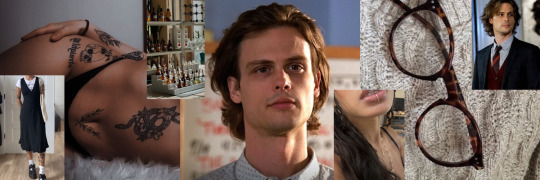
A/N: omggggg i loved writing this, you just know spencer would sooo be a sucker for a woman with tats and piercings, so canon
THANK YOU SO MUCH FOR REQUESTING xoxo
‧₊˚ ✩°。⋆♡ ⋆˙⟡♡ ⋆˙⟡♡⋆。°✩˚₊‧
pairings: spencer reid x alt!fem!reader
warnings: 18+ minors dni, glasses kink, praise, p in v, dirty talk, degrading sort of, office sex
wc: 2k
When you began dating Spencer, it raised a few eyebrows. Spencer Reid--reserved, a bit awkward, and endlessly knowledgeable--had ended up with someone who they thought was his complete opposite. And to that he would always say, "while the prevailing research suggests similarity is more common in relationships, there's an interesting phenomenon where sometimes, the very things that differ between two people can create a complementary dynamic, much like how two puzzle pieces with different notches fit."
At times, you would point out your differences solely to prompt this response. But, in truth, aside from your outward styles, you shared more similarities than not. Your tattoos and piercings were the first details Spencer noticed and quickly became his favorite as you strode into the morgue on a particularly demanding case. You were immersed in explaining how arsenic disrupted the body's functions, but Spencer was lost in the visual narrative of your ink, his gaze lingering on every etched symbol and shaded figure. From that moment, he was wholly engrossed, and vowed to eventually explore all the unseen tattoos that your clothes kept from view.
Spencer may have had the whole 'nerdy boy-next-door' aesthetic down to a science, but you? You took pride in being called 'intimidating', knowing it was just a first impression. You knew that beneath that surface lay as Spencer would say, 'a cinnamon roll'. Spencer seemed to see through it from the beginning, which is why he didn't hesitate to ask you out as soon as the case closed.
In the span of eight months, your life had been transformed into its healthiest chapter with Spencer as the culprit. He filled every day with thoughtful gesture--surprise art museum dates, breakfast in bed, flowers that would mysteriously find their way to your desk, notes you'd find tucked inside your coat pockets. In fact, if you had seen it in a cheesy rom-com, he probably had done it. You had been tackling each day with a little spring in your step.
Just like today--you bounded into your office humming—you were humming as you went over paperwork. Tasked with consulting for the consumer safety department, your focus was zeroed in on the pervasive issue of phthalates creeping into beauty products. You adjusted the unfamiliar weight of the thick black frames perched on your nose--an odd sensation since you habitually opted for contacts--as your eyes dragged over the papers.
The hum of the fax machine broke the silence, and you swiveled in your chair, a smile dawning as you recognized the documents from last week's BAU case--giving you a chance to steal a moment with your boyfriend.
Paperwork in hand, you made your way to the BAU office, the click of your heels on marble floors keeping time with your quickening pulse. The bullpen was a whirlwind of activity as you greeted Morgan and Prentiss with a nod and smile, your gaze sweeping through the room until it landed on him.
"Hi there, handsome," you greeted with a playful lilt in your voice, your fingers rapping gently against the wood of his desk.
"Hi, sweetheart--," he began, but his words trailed off as his eyes met yours. There was a pause, a momentary lapse in his ever-flowing stream of thoughts, as he took in the sight of you.
Glasses? He couldn't recall you ever wearing glasses, yet there they were, and the effect was undeniable. The sight sent a wave of unexpected thrill through him--a visceral reaction that left him speechless, his lips parting in awe.
Spencer's throat cleared, a subtle sound amid the bullpen's activity. His gaze flickered around the room, a silent plea that his colleagues were too engrossed in their work to notice the way he practically undressed you with his eyes. "Since when do you wear glasses?"
"Since I nearly scratched my eye out trying to get my contacts in this morning," you said with a laugh, though the action of straightening your glasses was more of a nervous tic.
His stare was unyielding--intense and almost piercing. It unsettled you slightly as you studied his expression, your head tilting inquisitively as he said nothing else.
"Well, uh, anyway I have to drop this off to Hotch," you murmured, your voice trailing off as you felt the weight of Spencer's penetrating gaze.
You lingered for a heartbeat too long, hoping for a word, a smile--anything. But nothing came. With a shaky breath, you turned away, hands trembling ever so slightly as you handed the paperwork to Hotch. You whisked yourself back to the comfort of your office. The was weird, right? I mean, sure, Spencer had never been one for being overly affectionate in public, but he at least had more to say than that.
You pushed the nagging doubts to the back of your mind, focusing on the monotony data and figures that sprawled across your reports. He was probably just having a bad day, too maybe theoretical thoughts brewing in the beautiful mind of his.
The hours crawled by, each minute punctuated by the drone of the office--uninteresting reports, pesky coworkers, and the persistent buzz of thoughts circling back to Spencer. When it was an appropriate time to take your lunch, you pushed your laptop aside with a little too much eagerness, hands diving into your bag for your food.
But before you could do that, a soft interruption at the door caught your attention. Your head snapped up, meeting Spencer's gaze as he leaned causally against the frame of the door.
He stood there, watching as you glanced up at him, the rims of your glasses framing your eyes in a way that made an involuntary shiver down his spine, his gaze lingering on your face. You appeared tired, yes, but the image of you like this had been imprinted on his mind all day, rendering his work secondary to the thought of seeing you again.
"Spence, hi," you greeted, a sweet smile blooming on your lips as you peered up at him. Your brows knit together slightly; his visits were rare unless case-related. "I was just about to take my lunch, wanna join?"
"No," he replied with a swift shake of his head, the corners of his mouth twitching into a knowing smirk. "Could I borrow you for a second?"
Your gaze returned to the lunch that lay before you, untouched and suddenly unappealing. Letting out a small sigh, you nodded. "Sure," you replied, still trying to piece together Spencer's odd behavior today.
He tilted his head back subtly, a silent cue for you to follow him. You obliged without hesitation, following after him, your steps echoing his through the hallway. Your confusion mounted, etched into the deepening furrow of your brows with each corner turned.
"Spencer," you said, a giggle escaping your lips. "I trust you're not taking me down some ominous hallway to meet my untimely end?"
"Actually, it is an interesting fact that the majority people meet their 'untimely end' at the hands of someone they love."
"Great, thank you for that, I think that's my cue," you joked, pivoting away in an attempt to make a dramatic exit. But Spencer's reflexes were quick, his grasp secure on your wrist as he steered you into the nearest supply closet. The small space muffled your surprised oomph as you nearly collided with a stack of supplies.
You stumbled into the warmth of his chest, your glasses skewing comically as you steadied them with a fingertip. "Spencer! What has gotten into you?"
"You," came his growl, rough and urgent, while his hands frantically sought your legs, pinning you against the wall.
A soft moan slipped through the surprise of parted lips as his lips found yours. Your fingers tangled in the soft locks of his hair, pulling him closer, your mouth meeting his with the same intensity.
Your laughter mingles with the kiss as you pull back, lips brushing. "Not that I'm complaining, Agent Reid, but someone is definitely going to catch us."
His eyes meet yours, equally amused as he pins your hands over your head. He makes quick work of open-mouthed kisses on your neck, your body instantly melting into his as his teeth scrape along your sweet spot. "Don't care."
His lips trailed back to yours, his fingers fumbling to push your skirt up to your stomach. You let out a surprised gasp into his mouth, finding the sudden intensity of him incredibly hot. He pressed his thumb into your clit as you dug your fingers into the nape of his neck, your head lolling back as you all but thrusted into his hand. The room swirled with heat, your glasses misting up. You reached for the pesky frames, but his fingers intercepted, pining them against your chest.
"Those stay on, sweetheart." The words tickled your ear, intimate and close, as his fingers traced through your slick folds, coaxing a contented pant from you.
"That's what's got you all worked up, Spence?" You moaned out as his fingers glided over your skin, now slick, drawing a line of warmth up your body.
He settled his thumb on your tongue, shutting you up as he grabbed a handful of your ass. You wrapped your lips around it, savoring the taste as your eyes locked with his over the foggy veil of your glasses. His gaze held a quiet pride as he smirked.
"Drove me crazy seeing you like that this morning." He said as he ground his body into yours, his erection settling on your stomach. "Makes you look so fuckable. Couldn't focus on anything else."
Your mouth vibrated softly around his thumb, muffled as he drew it away with pop. He makes quick work of undoing his belt, shoving down his pants and boxers just enough to release his length.
Your mouth watered at the sight, your body instinctively lowering to your knees, but his hand was there stopping you with a firm, "No time."
He pinned your shoulders to the wall with his body, his mouth crashing with yours with desperate need. Your mouth fell open into his as you felt his length press into your opening, his fingers holding your panties aside.
"You feel so good, sweetheart."
You don't think you would ever get over the feeling of him inside you, the way he stretched you out just right. You let out an unrestrained moan as he proceeded to pump inside you, his movements ruthless.
His palm sealed over your lips, a sudden barrier that sent warmth spreading across your face, glasses clouding rapidly, obscuring your view. "Quiet, baby. You want everyone to know how much of a slut you are for me? Letting me fuck you in the office?"
You all but sobbed against his palm, your hands fisting the material of his sweater as he continued to abuse your pussy with deep strokes.
"Sp-Spence, please baby," you managed to breathe out as he released his hold on your mouth, grinding against him in an attempt at friction with your sensitive clit.
"What do you need, sweetheart?" He questioned, almost condescendingly as his fingers traced your cheek gently, a stark contrast to the way he pounded into you. "Need me to take care of you?"
"Please," you choked out.
"You're so good for me, baby." He said, his thrusts becoming sloppier and sloppier as he pressed his thumb to the part of you that ached most. You let out a sob of relief as you ground against his movements, the familiar coil in your stomach beginning to wind up as you clutched at Spencer's face.
"Spencer, shit, 'm so close," you babbled, tears welling in your eyes as each of his thrusts seemed to urge the ache.
"Go ahead, baby." He moaned as his you felt his thighs twitch against you. "Come on my cock, sweet girl."
His words were all you needed to push you off the edge, your back arching against the wall as your legs shook, threatening to collapse as a wave of pleasure washed over you. He came shortly after you, his form yielding to gravity as his head nestled into the crook of your shoulder, both of you panting softly as you tried to catch your breath.
After savoring a few heartbeats of content, he gently disentangled himself from you. His fingers deftly rearranging your skirt, with a touch so soft, so different from his demeanor two minutes ago.
"Guess I need to wear the glasses more often, huh?"
A soft laughter bubbled up from him, his fingers lightly grazing under your eyes, brushing away the stray smudges of makeup. "Please do."
#spencer reid#spencer reid x reader#spencer reid smut#spencer reid fic#criminal minds smut#spencer reid x you#mgg#matthew gray gubler#spencer reid fanfic
779 notes
·
View notes
Text
Let's talk about some lesser known symptoms of autism! Maybe this will help some of you get a broader perspective on what this can be like. There is a whole grab bag of symptoms of autism, but here are some ones you may not know that you have.
Focus on truth
What does this mean? Well glad you asked. This is the focus on facts and logic rather than anything else. People have shown this as autistic people may refusing to lie because it goes against what they find as true. But that's not always the case.
Have you ever used logic to try and figure out your emotions?
Are you someone who doesn't understand why others may speculate when the current knowledge is right there? (such as subtext versus canon knowledge or theoretical arguments)
Do you find it frustrating when others avoid their problems as a way to avoid figuring out negative things? (such as avoiding conflict in a friend group)
Is it easy for you to talk about your strengths and flaws? Do you know your likes, dislikes and limits pretty well?
High context communication
This is preference on details and the full context of any situation. Often going into great detail and backstory to anything.
Do you feel as though you need to overexplain to give the person everything they need to know?
Have you ever apologized to someone by explaining the deep and meaningful reasons of why you did it, before you said you were sorry? And maybe even felt upset or confused why they reacted badly?
Have you ever felt stressed out because you wanted to give others full detail but they either interrupted you or cut you off?
Are you stressed out by people who tell you what to do and not why they want you to do it?
Are you ever told that you talk back a lot?
Do you prefer recipes versus verbal/vague instructions? (All the things that you need such as ingredients, measurements, prep time, etc.)
Do you really like watching deep dives and knowing about the whole history of something you're even vaguely interested in?
Identity diffusion
This is not everyone's experience, and it is common in a variety of other disorders such as DID and BPD. However, it is when you do not know who you are in regards to others. This is also known as identity disturbance.
Have you ever felt like an outsider without knowing why?
Are you deeply interested on what other people think of you? Especially if it's all the time?
Do you really like taking personality tests and quizzes? Are you interested in horoscopes?
Do you feel like you don't fit in any one specific group? Either being a loner, or hopping in between many different groups?
Do you ever feel weirder than the "weird kids" group? Do you not really get along or feel like you belong with them?
Do you have low self esteem when it comes to comparing yourself to your friends? Do you feel like they're better or more capable than you?
Do you feel drastically unimportant and not as interesting or cool as everyone else?
Have you ever related to narratives surrounding a character that is the last of their kind?
Do you feel like your identity is a vast and gaping void, that even if you learn a little bit, that you'll never know everything?
Internalized repetition
This is one of those traits that not every autistic person experiences, but that some might. You could say that for all autistic traits, but hey, good to know regardless.
Because of internalized repetition, you may not do many external stims, besides vocal.
Do you listen to a song over and over again? Perhaps having a playlist on repeat?
When stressed out, do you type the same word or phrase over and over again?
Do you like looking at the same things, such as the same color or the same artist's works?
Do you really like certain patterns, crystals or aesthetics?
Do you enjoy games with recognizable fighting patterns? (Such as character rotation, boss battle rotation, etc.)
Struggling to connect to others *
This is something that's been characterized by struggling to connect to others through their emotions, but the opposite is actually true for many autistic people.
*I will be talking about those who struggle to connect to others who are emotionally distant or unavailable. Being emotionally distant or not showing emotions externally is a trait that many autistic people share, but for those without alexithymia, they may struggle to understand why anyone wouldn't like to talk about their emotions.
I don't know the specific symptom term for this, so please bare with me. If anyone would like to inform me about what this is called, please tell me.
Do you struggle to talk with dry texters, or tend to over-examine people's tone through text?
Do you have anxious attachment?
Do you feel disconnected with many other autistic people and struggle to make friends or talk to them?
Do you feel embarrassment or shame with being emotionally sensitive?
Have you fallen down the rabbit hole of things like starseeds, star children or empaths?
Do you want to talk about serious emotions a lot, even when its not appropriate?
Do you trauma dump or wish people would become more emotionally intimate with you? Do you enjoy it when people share their deep traumas with you, even if it's triggering?
Are you constantly reassurance seeking?
There is plenty more symptoms out there, and these are just a few that stood out to me, because I think I may be autistic. I've always related somewhat, but never connected the dots. But there are reasons for that, such as identity diffusion and thinking I'm different from everyone else no matter what.
I struggled because I didn't seem to have a lot of the outward and visible symptoms that were often talked about. I thought every autistic person had alexithymia, when that's just not true.
My best friend, who has similar symptoms to me, along with another close friend of mine, have a similar presentation of autism. And it's taken quite a bit for me to accept or process. I feel like I'm faking my experiences just because I've self diagnosed before. And I'm angry that ADHD isn't given enough significance.
But I think I might be autistic, and this article that I based this post off of, confirmed it. So here's my post informing and coming out on that. You can be autistic and highly masking without actually knowing what's going on is masking. You can be autistic and have a spectrum of verbality, you can be autistic and struggle to connect to anyone who isn't immediately emotionally intimate with you. You can be autistic and not relate at all to other autistic people.
You're not alone.
#babey posts#actually autistic#audhd#autism#autism spectrum disorder#i know its a spectrum disorder but bro it doesn't feel like it#its broader than you might realize#you can be autistic and struggle to accept it#this has been the most frustrating and painful realization#i just. i feel a lot of negative feelings at myself about this#but i want to curate a place for people to exist without judgement#and before the anti self dx ppl come in here. this has never been the blog for you.#if youre like this. you belong here.#and if you just understand this. you also belong here.#you're not alone
1K notes
·
View notes
Text
The Mask Trope, and Disfiguremisia in Media
[large text: The Mask Trope, and Disfiguremisia in Media]
If you followed this blog for more than like a week, you're probably familiar with “the mask trope” or at least with me complaining about it over and over in perpetuity. But why is it bad and why can't this dude shut up about it?
Let's start with who this trope applies to: characters with facial differences. There is some overlap with blind characters as well; think of the blindfold that is forced on a blind character for no reason. Here is a great explanation of it in this context by blindbeta. It's an excellent post in general, even if your character isn't blind or low vision you should read at least the last few paragraphs.
Here's a good ol’ tired link to what a facial difference is, but to put it simply:
If you have a character, who is a burn survivor or has scars, who wears a mask, this is exactly this trope.
The concept applies to other facial differences as well, but scars and burns are 99% of the representation and “representation” we get, so I'll be using these somewhat interchangeably here.
The mask can be exactly what you think, but it refers to any facial covering that doesn't have a medical purpose. So for example, a CPAP mask doesn't count for this trope, but a Magic Porcelain Mask absolutely does. Bandages do as well. If it covers the part of the face that is “different”, it can be a mask in the context used here.
Eye patches are on thin ice because while they do serve a medical purpose in real life, in 99.9% of media they are used for the same purpose as a mask. It's purely aesthetic.
With that out of the way, let's get into why this trope sucks and find its roots. Because every trope is just a symptom of something, really.
Roughly in order of the least to most important reasons...
Why It Sucks
[large text: Why It Sucks]
It's overdone. As in — boring. You made your character visibly different, and now they're no longer that. What is the point? Just don't give them the damn scar if you're going to hide it.
Zero connection with reality. No one does this. I don't even know how to elaborate on this. This doesn't represent anyone because no one does this.
Disability erasure. For the majority of characters with facial differences, their scars or burns somehow don't disable them physically, so the only thing left is the visible part… aaand the mask takes care of it too. Again, what's the point? If you want to make your disabled character abled, then just have them be abled. What is the point of "curing" them other than to make it completely pointless?
Making your readers with facial differences feel straight up bad. I'm gonna be honest! This hurts to see when it's all you get, over and over. Imagine there's this thing that everyone bullied you about, everyone still stares at, that is with you 24/7. Imagine you wanted to see something where people like you aren't treated like a freakshow. Somewhat unrealistic, but imagine that. That kind of world would only exist in fiction, right? So let's look into fiction- oh, none of the positive (or at least not "child-murderer evil") characters look like me. I mean they do, but they don't. They're forced to hide the one thing that connects us. I don't want to hide myself. I don't want to be told over and over that this is what people like me should do. That this is what other people expect so much that it's basically the default way a person with a facial difference can exist. I don't want this.
Perpetuating disfiguremisia.
"Quick" Disfiguremisia Talk
[large text: "Quick" Disfiguremisia Talk]
It's quick when compared to my average facial difference discussion post, bear with me please.
Disfiguremisia; portmanteau of disfigure from “disfigurement” and -misia, Greek for hatred.
Also known as discrimination of those mythical horrifically deformed people.
It shows up in fiction all the time; in-universe and in-narrative. Mask trope is one of the most common* representations of it, and it's also a trope that is gaining traction more and more, both in visual art and writing. This is a trope I particularly hate, because it's a blatant symptom of disfiguremisia. It's not hidden and it doesn't try to be. It's a painful remainder that I do not want nor need.
*most common is easily “evil disfigured villain”, just look at any horror media. But that's for another post, if ever.
When you put your character in a mask, it sends a clear message: in your story, facial differences aren't welcome. The world is hostile. Other characters are hostile. The author is, quite possibly, hostile. Maybe consciously, but almost always not, they just don't think that disfiguremisia means anything because it's the default setting. No one wants to see you because your face makes you gross and unsightly. If you have a burn; good luck, but we think you're too ugly to have a face. Have a scar? Too bad, now you don't. Get hidden.
Everything here is a decision that was made by the author. You are the one who makes the world. You are the person who decides if being disabled is acceptable or not there. The story doesn't have a mind of its own, you chose to make it disfiguremisic.
It doesn't have to be.
Questions to Ask Yourself
[large text: Questions to Ask Yourself]
Since I started talking about facial differences on this blog, I have noticed a very specific trend in how facial differences are treated when compared to other disabilities. A lot of writers and artists are interested in worldbuilding where accessibility is considered, where disabled people are accepted, where neurodivergence is seen as an important part of the human experience, not something “other”. This is amazing, genuinely.
Yet, absolutely no one seems to be interested in a world that is anything but cruel to facial differences. There's no escapist fantasies for us.
You see this over and over, at some point it feels like the same story with different names attached.
The only way a character with a facial difference can exist is to hide it. Otherwise, they are shamed by society. Seen as something gross. I noticed that it really doesn't matter who the character is, facial difference is this great equalizer. Both ancient deities and talking forest cats get treated as the same brand of disgusting thing as long as they're scarred, as long as they had something explode in their face, as long as they've been cursed. They can be accomplished, they can be a badass, they can be the leader of the world, they can kill a dragon, but they cannot, under any circumstances, be allowed to peacefully exist with a facial difference. They have to hide it in the literal sense, or be made to feel that they should. Constantly ashamed, embarrassed that they dare to have a face.
Question one to ask yourself: why is disfiguremisia a part of your story?
I'm part of a few minority groups. I'm an immigrant, I'm disabled, I'm queer. I get enough shit in real life for this so I like to take a break once in a while. I love stories where transphobia isn't a thing. Where xenophobia doesn't come up. But my whole life, I can't seem to find stories that don't spew out disfiguremisia in one way or the other at the first possible opportunity.
Why is disfiguremisia a default part of your worldbuilding? Why can't it be left out? Why in societies with scarred saviors and warriors is there such intense disgust for them? Why can't anyone even just question why this is the state of the world?
Why is disfiguremisia normal in your story?
Question two: do you know enough about disfiguremisia to write about it?
Ask yourself, really. Do you? Writers sometimes ask if or how to portray ableism when they themselves aren't disabled, but no one bothers to wonder if maybe they aren't knowledgeable enough to make half their story about their POV character experiencing disfiguremisia. How much do you know, and from where? Have you read Mikaela Moody or any other advocates’ work around disfiguremisia? Do you understand the way it intersects; with being a trans woman, with being Black? What is your education on this topic?
And for USAmericans... do you know what "Ugly Laws" are, and when they ended?
Question three: what does your story associate with facial difference — and why?
If I had to guess; “shame”, “embarrassment”, “violence”, "disgust", “intimidation”, “trauma”, “guilt”, “evil”, “curse”, “discomfort”, “fear”, or similar would show up.
Why doesn't it associate it with positive concepts? Why not “hope” or “love” or “pride” or “community”? Why not “soft” or “delicate”? Dare I say, “beauty” or “innocence”? Why not “blessing”? “Acceptance”?
Why not “normal”?
Question four: why did you make the character the way they are?
Have you considered that there are other things than “horrifically burned for some moral failing” or “most traumatic scenario put to paper”? Why is it always “a tough character with a history of violence” and never “a Disfigured princess”? Why not “a loving parent” or “a fashionable girl”, instead of “the most unkind person you ever met” and “total badass who doesn’t care about anything - other than how scary their facial difference is to these poor ableds”? Don’t endlessly associate us with brutality and suffering. We aren’t violent or manipulative or physically strong or brash or bloodthirsty by default. We can be soft, and frail and gentle and kind - and we can still be proud and unashamed.
Question five: why is your character just… fine with all this?
Can’t they make a community with other people with facial differences and do something about this? Demand the right to exist as disabled and not have to hide their literal face? Why are they cool with being dehumanized and treated with such hatred? Especially if they fall into the "not so soft and kind" category that I just talked about, it seems obvious to me that they would be incredibly and loudly pissed off about being discriminated against over and over... Why can't your character, who is a subject of disfiguremisia, realize that maybe it's disfiguremisia that's the problem, and try to fix it?
Question six: why is your character wearing a mask?
Usually, there's no reason. Most of the time the author hasn't considered that there even should be one, the character just wears a mask because that's what people with facial differences do in their mind. Most writers aren't interested in this kind of research or even considering it as a thing they should do. The community is unimportant to them, it's not like we are real people who read books. They think they understand, because to them it's not complex, it's not nuanced. It's ugly = bad. Why would you need a reason?
For cases where the reason is stated, I promise, I have heard of every single one. To quote, "to spare others from looking at them". I have read, "content warning: he has burn scars under the mask, he absolutely hates taking it off!", emphasis not mine. Because "he hates the way his skin looks", because "they care for their appearance a lot" (facial differences make you ugly, remember?). My favorite: "only has scars and the mask when he's a villain, not as a hero", just to subtly drive the point home. This isn't the extreme end of the spectrum. Now, imagine being a reader with a facial difference. This is your representation, sitting next to Freddy Krueger and Voldemort.
How do you feel?
F.A.Q. [frequently asked questions]
[large text: F.A.Q. [frequently asked questions]]
As in, answers and “answers” to common arguments or concerns.
“Actually they want to hide their facial difference” - your character doesn’t have free will. You want them to hide it. Again; why.
“They are hiding it to be more inconspicuous!” - I get that there are elves in their world, but there’s no universe where wearing a mask with eye cutouts on the street is less noticeable than having a scar. Facial differences aren’t open wounds sprinkling with blood, in case that's not clear.
“It’s for other people's comfort” - why are other characters disfiguremisic to this extent? Are they forcing all minorities to stay hidden and out of sight too? That’s a horrible society to exist in.
“They are wearing it for Actual Practical Reason” - cool! I hope that this means you have other characters with facial differences that don’t wear it for any reason.
"It's the character's artistic expression" - I sure hope that there are abled characters with the same kind of expression then.
“They’re ashamed of their face” - and they never have any character development that would make that go away? That's just bad writing. Why are they ashamed in the first place? Why is shame the default stance to have about your own face in your story? I get that you think we should be ashamed and do these ridiculous things, but in real life we just live with it.
"Now that you say that it is kinda messed up but I'm too far into the story please help" - here you go.
“[some variation of My Character is evil so it's fine/a killer so it fits/just too disgusting to show their disability” - this is the one of the only cases where I’m fine with disability erasure, actually. Please don’t make them have a facial difference. This is the type of harm that real life activists spend years and decades undoing. Disfiguremisia from horror movies released in the 70s is still relevant. It still affects people today.
"But [in-universe explanation why disfiguremisia is cool and fine actually]" - this changes nothing.
Closing Remarks
[large text: Closing Remarks]
I hope that this post explains my thoughts on facial difference representation better. It's a complicated topic, I get it. I'm also aware that this post might come off as harsh (?) but disfiguremisia shouldn't be treated lightly, it shouldn't be a prop. It's real world discrimination with a big chunk of its origins coming out of popular media.
With the asks that have been sent regarding facial differences, I realized that I probably haven't explained what the actual problems are well enough. It's not about some technical definition, or about weird in-universe explanations. It's about categorizing us as some apparently fundamentally different entity that can't possibly be kind and happy, about disfiguremisia so ingrained into our culture that it's apparently impossible to make a world without it; discrimination so deep that it can't be excised, only worked around. But you can get rid of it. You can just not have it there in the first place. Disfiguremisia isn't a fundamental part of how the world works; getting rid of it won't cause it to collapse. Don't portray discrimination as an integral, unquestionable part of the world that has to stay no matter what; whether it's ableism, transphobia, or Islamophobia or anything else. A world without discrimination can exist. If you can't imagine a world without disfiguremisia in fiction... that's bad. Sad, mostly. To me, at least.
Remember, that your readers aren't going to look at Character with a Scar #14673 and think "now I'm going to research how real life people with facial differences live." They won't, there's no inclination for them to do so. If you don't give them a reason, they won't magically start thinking critically about facial differences and disfiguremisia. People like their biases and they like to think that they understand.
And, even if you're explaining it over and over ;-) (winky face) there will still be people who are going to be actively resistant to giving a shit. To try and get the ones who are capable of caring about us, you, as the author, need to first understand disfiguremisia, study Face Equality, think of me as a human being with human emotions who doesn't want to see people like me treated like garbage in every piece of media I look at. There's a place and time for that media, and if you don't actually understand disfiguremisia, you will only perpetuate it; not "subvert" it, not "comment" on it.
I hope this helps :-) (smile emoji. for good measure)
Mod Sasza
#mod sasza#disfiguremisia#face difference#mask trope#writing trope#writing resource#writing reference#writing resources#writing advice#writeblr#writing tips#long post#burn survivor representation
370 notes
·
View notes
Text
I have two major criticisms for the first season of Nocturne.
The pacing and the villains.
In the original series, Seasons 1 & 2 are basically just one whole season in and of themselves. It is a focused narrative that doesn't spend a single moment wasting plot or character development.
Whenever the episodes decide to slow down, it feels deliberate. The down times in the first two seasons were rich with character interaction that helped attachments grow and allow the plot to flourish organically.
The best examples of this are when we explore Isaac and Hector's pasts; and when Trevor, Alucard and Sypha arrive at the Belmont hold. There was a rhythm to the seasons. Dialogue, conversations, contest of philosophies, witty banter, and hard truths. Then we transition smoothly to excellently animated and choreographed fight scenes that have weight because we saw these characters humanized in various ways beforehand.
For the villains, Dracula was impeccable. Weak. Starving. Exhausted. Suicidal. His grief and his hatred loomed like a shadow over every single character and plotline throughout the two seasons, and the effects of his demise echoed until the very end.
Castlevania had its flaws. It had its weaknesses. Especially when it was cut to four seasons when it really should have been five. But it was nevertheless a focused narrative.
Nocturne, for all its excellence, does have some glaring flaws that are hard to overlook.
Erzsebet feels threatening and powerful, but the more I watched the show, the more it felt like these were because of purely aesthetic reasons. Don't get me wrong—her design is gorgeous, her past seems rich with potential for the narrative, and I loved how she struck the fear of god in every hero the moment she stepped into the Abbey. But she isn't Dracula-levels of impactful.
Olrox and Drolta did most of the heavy lifting. In the first Castlevania, even when Dracula wasn't the main arc villain, his presence was felt. Erzsebet doesn't have that same weight. She feels... empty at times, as a villain.
That can definitely be fixed in season 2 and I pray that the showrunners prove me wrong. I love being proven wrong because that means the show continues to grow.
The second criticism is pacing. God, the pacing.
Nocturne at times felt all over the place.
Annette's plot of her escaping the clutches of slavery? The way we saw her perspective on the Haitian Revolution? So fucking good. Richter's struggles? Emotionally rich and hooks us immediately. It's the constant, almost dizzying shifts between them, the Abbey, Drolta, Edouard, and the past that drags it down just a bit.
I loved Nocturne. A solid 8/10 for me and I am dying in the dirt waiting for the next season.
But I think the show should've been 10 episodes to accommodate the ensemble cast and their varying plots, and I hope that Erzsebet is improved upon as a villain, a threat, and a character.
#castlevania nocturne#castlevania#richter belmont#annette castlevania#annette#erzsebet bathory#olrox#netflix castlevania#alucard#adrien tepes
428 notes
·
View notes
Note
I've never made any connections between Worm and the Captain America mythos before. Spill some ink?
Okay, so from a purely aesthetic perspective, the gimme is Miss Militia. She's the most obvious "Captain Patriotic" in the roster, she has the power of GUN, she's the only one who actively buys into the mythology of America specifically. She's a Kurdish woman occupying an aesthetic niche generally held by a rugged squinty white guy. She's an output of the melting pot narrative. She's sort of a rendering of what a grounded superhero who somehow became very aesthetically into America might look like. Not in the craven marketing-driven way of Homelander or Comedian, not in the jingoistic maniac way of USAgent or Peacemaker. She buys it in the broadly left-liberal (USamerican connotation of that term) safe, friendly, reclamative way. Why, what a great rehabilitation of the archetype!
She's also deeply, deeply afraid of rocking the boat. She's got a deepseated childhood trauma related to the bad things that happen when she puts herself in a leadership role. She goes along to get along. When she's proactive, it's usually to point a gun at Tattletale to stop her from upsetting the status quo. She sits through a lot of situations where Steve Rogers, as commonly modeled, would probably plant himself like a tree by the river of truth and go, "Hey, this is fucked up." She more or less capitulates to Undersider domination of the city, in a way that predisposes us to think of her as a voice of reason after all these total nuts that Skitter's been up against- but would Taylor "to relinquish control is a form of ego death" Hebert really be willing to leave someone in charge of the local Protectorate branch who she thought couldn't be corralled? She looks like a beacon, but doesn't- indeed, probably can't- ever truly behave like one. I mean, you can debate the on-the-spot morality of any given one of her judgement calls, that's actually one of the less exhausting Worm Morality Debates to have- but in aggregate, a person in American flag garb who actually meaningfully criticizes the paramilitary organization they're part of is not gonna survive long in that role!
So again, she's the gimme from an aesthetic standpoint. But what I don't really see a lot of discussion of is how Cauldron plays into the riff.
Captain America is institutional, but in a comically morally uncomplicated way. The serum was originally mana from heaven, granted to a living saint, conveniently divorced from any nitty-gritty sausage-making process and even-more conveniently divorced from the horrible consequences of giving the, uh, the U.S government a replicable super soldier process. And in fairness to Captain America, this is 100 percent something the overall mythos eventually patched to my satisfaction; the sausage-making process eventually revealed as prototypical government fuckery driven by human experimentation on black servicemen, the overall Marvel Setting littered with failed attempts by the U.S. Government to recreate that golden goose so they can have their fun new jackboots. (In Ultimate Marvel, this is how almost all contemporary superhumans were created, and this is a state of affairs with a body count in the millions or billions.)
Cauldron draws you in with the same noble rhetoric about greater goods, the same one-off proprietary irreplicable formula- but you don't get the luxury afterwards of representing nothing but the dream. You aren't partnering up with a plucky crank scientist with a heart of gold. You're selling your soul to an organization with an agenda. The narrative makes no bones about the fact that everything you do is fundamentally tainted by the fact you opted into an end product created through torture, kidnapping and human experimentation. You don't get to pull a Kamen Rider by going rogue or opting out or making good use of the fruit of the poisoned tree; you are owned, and everything you do has this Damocles sword hanging over your head- when are the people who bankrolled this going to come to collect?
So that's the question of "who would willingly dress like that" covered, and the question of who creates a serum like that. What about the question of who takes a serum like that? I'd argue that Eidolon is the examination of that. Pre-Cauldron David reads to me like pre-serum Steve Rogers viewed through a significantly bleaker lens. They're both sickly kids desperate to serve, rocketed to the pinnacle of human capability by an experimental procedure. But for Steve Rogers, the crisis was that he had a specific vision of the world and was frustrated by his inability to carry it out. Before the serum he picked fights over what was right and wrong and got his ass handed to him; afterwards he picked those same fights and just started winning instead. The serum neatly solved a problem he had, and to the extent that his mindset is influenced by his pre-serum experiences, it's generally constructive; a desire to protect the weak, help the helpless, an appreciation for people who stand up for what's right even when they're clearly gonna get pancaked for their trouble. So ultimately there's no dark side, downside, or underlying neurosis ascribed to his initial impulse to take that serum.
But with David, it's not a tragic case of the spirit being willing but the flesh being weak. He isn't a preternaturally-noble soul, out to represent the best elements of the American ideal- he kind of represents the inverse, a guy who's been failed at every level while utterly convinced that he's the problem. He's actively suicidal because he's a wheelchair-bound epileptic in an economically-depressed socially-backwards rural town in the 1980s, and he's spent his 18 years of life internalizing the idea that he's worse than useless unless he can somehow find a way provide value to something larger than himself. Doctor Mother finds him in the aftermath of a suicide attempt spurred by his rejection from the army- and he didn't even want to join the army specifically, necessarily, he just needed his situation to be literally anything else, and he took what he thought he could get. And then he finds himself in a position to become a superhero, so he does that, molds himself into that, subordinates himself to that, builds his entire sense of self and values around the value he can provide in that role. No grand design or sacred principles carried over through the metamorphosis. Just relief at finally, finally having something that looks like an answer to the question of what he's supposed to do.
And you know, you know that if Steve Rogers was facing down the barrel of being depowered, he'd smile and nod, he'd Cincinnatus that shit. It's happened before. But for David, the emotional trauma and self-worth issues that caused him to roll the dice on a Steve-Rogers treatment never really went away. When would it? He's been Providing Value as a ten-ton Hammer Against Evil for thirty years. No family, no social life. Certainly, no incentive on his handler's part to lance his Atlas complex. So he barrels towards atrocity in the name of remaining useful. Admittedly, this is where the comparison breaks down in a significant way; Captain America is much more of a symbol than he is an irreplicable powerhouse, so it's not catastrophic if he's taken off the board. Eidolon is so unbelievably powerful that his myopia and self-centeredness actually do align with a real problem everyone else is gonna have if he loses his powers. But in terms of the starting points- I think that Steve Rogers embodies the myth about why you'd want to join the army that badly. Eidolon is, I think, much more closely modelling why you'd actually want to join the army that badly.
#apologies for the delay in responding#worm#wildbow#parahumans#worm meta#eidolon#thoughts#meta#miss militia
544 notes
·
View notes
Note
can you elaborate more on steve being abandoned by the narrative?
yes <3 so i think there are two very unfortunate circumstances surrounding steve's character that have led to the current state of his plotline: 1. after not killing him in s1 like they originally planned, the duffers have never really had a plan for steve and 2. they are extremely influenced by audiences. when they were conceptualizing steve to fit in among the ensemble cast, the duffers were picturing him as a douchey boyfriend who unceremoniously dies. lonnie was originally going to come back to the byers house to save jonathan and nancy. there was no need to picture where he'd be 4 seasons down the road, so they just didn't account for that. then joe keery charmed them so hard that they literally couldn't bear to kill him, so steve ends season one still somehow alive.
but we've already established the nancy/jonathan plotline, because jonathan was once the duffers' self-insert who must defeat the evil jock and win over the girl. they couldn't just backpedal on that right away, so they needed to give nancy and jonathan a plotline alone, away from steve. but steve only ever functioned as an extension of nancy until this point, so what do we do with steve now? in an accidental stroke of genius that the duffers have admitted was a last second decision, they pair him with the children and make him into a babysitter. it almost instantly boosts steve into being tied with hopper and el for most popular character from the show, potentially even beats them both out. in 2017 when s2 aired, you could not escape mom steve jokes. it was everywhere, steve was everywhere, joe was everywhere, it was arguably the second coming of #justice for barb, which, in netflix business-y terms, was the exact viral meme type situation that the show wanted and needed to sell merch and remain relevant and say "see we still got it!!!"
you know who has the 2nd most lines in the entirety of season three? directly behind hopper? ahead of winona ryder? steve. think for a second about how absolutely insane that is. the character who was written specifically to die in season one. joe keery's name wasn't even in the season one credits, because he wasn't considered a series regular. and now he has the 2nd most spoken lines in the big blockbuster season because he rocketed up in popularity so intensely. season three marketing features the mall so heavily, creates a literal physical shrine to 80s nostalgia, and when the very first promo is released an entire year before the season airs, who's the star of that teaser trailer? and who, pray tell, is featured in the main brand sponsorship ad that plays in movie theaters worldwide? thats right its america's little darling steve harrington.
but here is the issue. the duffers look at what made steve popular and they see: funny exasperated babysitter, heartthrob action hero. they're like oh okay so we should keep putting him directly in the center of the action, bang him up every season to give him his classic bloodied aesthetic, but. he still needs to be funny. we can almost kill him, but we can't actually kill him because he's profitable. we can let him get horrifically injured because it's badass, but we still gotta let him crack jokes. it creates this very weird tone to steve's role in the story starting in season 3 because he's both the action hero and the comedic relief and protected by plot armor, so we get scenes where he's being literally tortured until he's begging for his life and gasping for breath but the tone is still.......fun? comedic? light and goofy? i think the duffers also forgot he's supposed to be a teenager.
now this is partially me making educated guesses but i feel pretty confident about this: once again, like gollum, joe keery uses his big shiny eyes and manages to evade death again in season four by being so likable and charming and marketable that netflix execs or shawn levy or maybe even the duffers themselves were like oh fuck we just can't do it. they were obviously tossing around the idea of taking mom steve all the way by letting him die sacrificially for dustin, so in season four they make eddie, transfer steve's relationship with dustin directly onto him, ctrl f steve's name in the death scene and just type in eddie instead, and once again steve is alive but he's directionless.
so what does he have now, in season four? i think the duffers have a whiteboard somewhere with steve's name and around it are little circles that say "funny" "cool" "DO NOT KILL" and steve is now stuck in this endless cycle of getting beaten up, popping back up somehow unharmed like a looney tune, saying something cute and oblivious, rinse and repeat. because that's what worked, that's what made him popular all the way back in season two. that's what the duffers are obviously keeping in mind when they're writing steve: popularity. not realism, not depth, not growth, just literally how to continue making him popular. meanwhile, other characters get to be part of the actual story. other characters get to serve a purpose other than selling merch. when el is bitten by a monster, she gets to actually feel pain and need help because that's realistically what any human would need. when hopper is tortured, he gets to suffer and ponder his existence and reflect on the relationships in his life. steve never gets any of that, because the writers just don't see steve as the 19 year old boy on his 4th straight year of traumatic events that he actually is.
they literally just see him as a money maker, there for cool viral moments and witty lines and maybe the occasional emotion experienced but only if it's about his romantic prospects. and the narrative that other characters get to have and be apart of just kinda runs parallel to steve. he's there, technically, but he's not really in the story. and it's like actually crazy because you'd think after all the funko pops he sold, he'd have earned an actual storyline!!!
1K notes
·
View notes
Text
suuuuuuuuper disappointed with Fashion Dreamer, but I'm still having fun with it and don't regret buying it. it's such a step back from Style Savvy in every single category. literally does everything worse.
there's zero narrative or storyline
customization of clothing is literally just changing the colors, there's no textures or emblems or anything to add
sorting through your clothes is an utter nightmare. the old games let you filter by like… aesthetic type, category (not just "is a leg item" but getting as specific as "leggings" or "tube socks"); in this, all you can do is filter by the broadest category and since you have tons of stuff it's a nightmare
the gender binary, booooo
tons of categories of items are missing from old style savvy games, no handheld items whatever and it doesn't seem like necklaces, gloves, bracelets or any hand accessories whatsoever are there either
you can't save outfits. wtf!!! in ALL of the old games you can save a bunch of outfits you made, in this one you simply cannot. good luck remembering all the items you used when you have 7000 of them and no way to sort.
can't zoom in while dressing up, so good luck guessing what color a lot of those really thin eyeglasses and the like are. thought they were pink? nope sorry they were brass actually
there's no layering whatsoever. you used to have an outer layer and an inner layer, and you could wear all kinds of dresses, shirts etc over the inner layer to make nice looking combinations of things like corsets and stuff like that. and you could wear skirts over pants. now, nope, just one layer for tops (not counting jackets) and bottoms, and anything that looks "layered" came pre-made that way
the coolest items are locked behind a fricken GACHA
it is absolutely still a fun game to play if literally all you want to do is dress up a character to make numbers go up. i'm enjoying myself despite literally all of this. the Photo Egg is fun, the drone to take photos around the areas is a good feature. most of the clothing is very cute, and i'm glad to be able to customize them so that they aren't gratingly different shades of grey or whatever and make a coordinated outfit.
but whoof, without the store aspect and the little character storylines from dressing your various customers, the whole thing feels just as empty and hollow as i expected.
i will still be playing way too much of it though. anyone wanna be Fashion Dreamer friends? lol
333 notes
·
View notes
Text
In 2006, the year Taylor Swift released her first single, a closeted country singer named Chely Wright, then 35, held a 9-millimeter pistol to her mouth. Queer identity was still taboo enough in mainstream America that speaking about her love for another woman would have spelled the end of a country music career. But in suppressing her identity, Ms. Wright had risked her life.
In 2010, she came out to the public, releasing a confessional memoir, “Like Me,” in which she wrote that country music was characterized by culturally enforced closeting, where queer stars would be seen as unworthy of investment unless they lied about their lives. “Country music,” she wrote, “is like the military — don’t ask, don’t tell.”
The culture in which Ms. Wright picked up that gun — the same one in which Ms. Swift first became a star — was stunningly different from today’s. It’s dizzying to think about the strides that have been made in Americans’ acceptance of the L.G.B.T.Q. community over the past decade: marriage equality, queer themes dominating teen entertainment, anti-discrimination laws in housing and, for now, in the workplace. But in recent years, a steady drip of now-out stars — Cara Delevingne, Colton Haynes, Elliot Page, Kristen Stewart, Raven-Symoné and Sam Smith among them — have disclosed that they had been encouraged to suppress their queerness in order to market projects or remain bankable.
The culture of country music hasn’t changed so much that homophobia is gone. Just this past summer, Adam Mac, an openly gay country artist, was shamed out of playing at a festival in his hometown because of his sexual orientation. In September, the singer Maren Morris stepped away from country music; she said she did so in part because of the industry’s lingering anti-queerness. If country music hasn’t changed enough, what’s to say that the larger entertainment industry — and, by extension, our broader culture — has?
Periodically, I return to a video, recorded by a shaky hand more than a decade ago, of Ms. Wright answering questions at a Borders bookstore about her coming out. She likens closeted stardom to a blender, an “insane” and “inhumane” heteronormative machine in which queer artists are chewed to bits.
“It’s going to keep going,” Ms. Wright says, “until someone who has something to lose stands up and just says ‘I’m gay.’ Somebody big.” She continues: “We need our heroes.”
What if someone had already tried, at least once, to change the culture by becoming such a hero? What if, because our culture had yet to come to terms with homophobia, it wasn’t ready for her?
What if that hero’s name was Taylor Alison Swift?
In the world of Taylor Swift, the start of a new “era” means the release of new art (an album and the paratexts — music videos, promotional ephemera, narratives — that supplement it) and a wholesale remaking of the aesthetics that will accompany its promotion, release and memorializing. In recent years, Ms. Swift has dominated pop culture to such a degree that these transformations often end up altering American culture in the process.
In 2019, she was set to release a new album, “Lover,” the first since she left Big Machine Records, her old Nashville-based label, which she has since said limited her creative freedom. The aesthetic of what would be known as the “Lover Era” emerged as rainbows, butterflies and pastel shades of blue, purple and pink, colors that subtly evoke the bisexual pride flag.
On April 26, Lesbian Visibility Day, Ms. Swift released the album’s lead single, “ME!,” in which she sings about self-love and self-acceptance. She co-directed a campy music video to accompany it, which she would later describe as depicting “everything that makes me, me.” It features Ms. Swift dancing at a pride parade, dripping in rainbow paint and turning down a man’s marriage proposal in exchange for a … pussy cat.
At the end of June, the L.G.B.T.Q. community would celebrate the 50th anniversary of the Stonewall Riots. On June 14, Ms. Swift released the video for her attempt at a pride anthem, “You Need to Calm Down,” in which she and an army of queer celebrities from across generations — the “Queer Eye” hosts, Ellen DeGeneres, Billy Porter, Hayley Kiyoko, to name a few — resist homophobia by living openly. Ms. Swift sings that outrage against queer visibility is a waste of time and energy: “Why are you mad, when you could be GLAAD?”
The video ends with a plea: “Let’s show our pride by demanding that, on a national level, our laws truly treat all of our citizens equally.” Many, in the press and otherwise, saw the video as, at best, a misguided attempt at allyship and, at worst, a straight woman co-opting queer aesthetics and narratives to promote a commercial product.
Then, Ms. Swift performed “Shake It Off” as a surprise for patrons at the Stonewall Inn. Rumors — that were, perhaps, little more than fantasies — swirled in the queerer corners of her fandom, stoked by a suggestive post by the fashion designer Christian Siriano. Would Ms. Swift attend New York City’s WorldPride march on June 30? Would she wear a dress spun from a rainbow? Would she give a speech? If she did, what would she declare about herself?
The Sunday of the march, those fantasies stopped. She announced that the music executive Scooter Braun, who she described as an “incessant, manipulative” bully, had purchased her masters, the lucrative original recordings of her work.
Ms. Swift’s “Lover” was the first record that she created with nearly unchecked creative freedom. Lacking her old label’s constraints, she specifically chose to feature activism for and the aesthetics of the L.G.B.T.Q. community in her confessional, self-expressive art. Even before the sale of her masters, she appeared to be stepping into a new identity — not just an aesthetic — that was distinct from that associated with her past six albums.
When looking back on the artifacts of the months before that album’s release, any close reader of Ms. Swift has a choice. We can consider the album’s aesthetics and activism as performative allyship, as they were largely considered to be at the time. Or we can ask a question, knowing full well that we may never learn the answer: What if the “Lover Era” was merely Ms. Swift’s attempt to douse her work — and herself — in rainbows, as so many baby queers feel compelled to do as they come out to the world?
There’s no way of knowing what could have happened if Ms. Swift’s masters hadn’t been sold. All we know is what happened next. In early August, Ms. Swift posted a rainbow-glazed photo of a series of friendship bracelets, one of which says “PROUD” with beads in the color of the bisexual pride flag. Queer people recognize that this word, deployed this way, typically means that someone is proud of their own identity. But the public did not widely view this as Ms. Swift’s coming out.
Then, Vogue released an interview with Ms. Swift that had been conducted in early June. When discussing her motivations for releasing “You Need to Calm Down,” Ms. Swift said, “Rights are being stripped from basically everyone who isn’t a straight white cisgender male.” She continued: “I didn’t realize until recently that I could advocate for a community that I’m not a part of.” That statement suggests that Ms. Swift did not, in early June, consider herself part of the L.G.B.T.Q. community; it does not illuminate whether that is because she was a straight, cis ally or because she was stuck in the shadowy, solitary recesses of the closet.
On Aug. 22, Ms. Swift publicly committed herself to the as-of-then-unproven project of rerecording and rereleasing her first six albums. The next day, she finally released “Lover,” which raises more questions than it answers. Why does she have to keep secrets just to keep her muse, as all her fans still sing-scream on “Cruel Summer”? About what are the “hundred thrown-out speeches I almost said to you,” in her chronicle of self-doubt, “The Archer,” if not her identity? And what could the album’s closing words, which come at the conclusion of “Daylight,” a song about stepping out of a 20-year darkness and choosing to “let it go,” possibly signal?
I want to be defined by the things that I love,
Not the things I hate,
Not the things that I’m afraid of, I’m afraid of,
Not the things that haunt me in the middle of the night,
I just think that,
You are what you love.
The first time I viewed “Lover” through the prism of queerness, I felt delirious, almost insane. I kept wondering whether what I was perceiving in her work was truly there or if it was merely a mirage, born of earnest projection.
My longtime reading of Ms. Swift’s celebrity — like that of a majority of her fan base — had been stuck in the lingering assumptions left by a period that began more than a decade and a half ago, when a girl with an overexaggerated twang, Shirley Temple curls and Georgia stars in her eyes became famous. Then, she presented as all that was to be expected of a young starlet: attractive yet virginal, knowing yet naïve, not talented enough to be formidable, not commanding enough to be threatening, confessional, eager to please. Her songs earnestly depicted the fantasies of a girl raised in a traditional culture: high school crushes and backwoods drives, princelings and wedding rings, declarations of love that climax only in a kiss — ideally in the pouring rain.
When Ms. Swift was trying to sell albums in that late-2000s media environment, her songwriting didn’t match the image of a sex object, the usual role reserved for female celebrities in our culture. Instead, the story the public told about her was that she laundered her affection to a litter of promising grown men, in exchange for songwriting inspiration. A young Ms. Swift contributed to this narrative by hiding easy-to-decode clues in liner notes that suggested a certain someone was her songs’ inspiration (“SAM SAM SAM SAM SAM SAM,” “ADAM,” “TAY”) or calling out an ex-boyfriend on the “Ellen” show and “Saturday Night Live.” Despite the expansive storytelling in Ms. Swift’s early records, her public image often cast a man’s interest as her greatest ambition.
As Ms. Swift’s career progressed, she began to remake that image: changing her style and presentation, leaving country music for pop and moving from Nashville to New York. By 2019, her celebrity no longer reflected traditional culture; it had instead become a girlboss-y mirror for another dominant culture — that of white, cosmopolitan, neoliberal America.
But in every incarnation, the public has largely seen those songs — especially those for which she doesn’t directly state her inspiration — as cantos about her most recent heterosexual love, whether that idea is substantiated by evidence or not. A large portion of her base still relishes debating what might have happened with the gentleman caller who supposedly inspired her latest album. Feverish discussions of her escapades with the latest yassified London Boy or mustachioed Mr. Americana fuel the tabloid press — and, embarrassingly, much of traditional media — that courts fan engagement by relentlessly, unquestioningly chronicling Ms. Swift’s love life.
Even in 2023, public discussion about the romantic entanglements of Ms. Swift, 34, presumes that the right man will “finally” mean the end of her persistent husbandlessness and childlessness. Whatever you make of Ms. Swift’s extracurricular activities involving a certain football star (romance for the ages? strategic brand partnership? performance art for entertainment’s sake?), the public’s obsession with the relationship has been attention-grabbing, if not lucrative, for all parties, while reinforcing a story that America has long loved to tell about Ms. Swift, and by extension, itself.
Because Ms. Swift hasn’t undeniably subverted our culture’s traditional expectations, she has managed, in an increasingly fractured cultural environment, to simultaneously capture two dominant cultures — traditional and cosmopolitan. To maintain the stranglehold she has on pop culture, Ms. Swift must continue to tell a story that those audiences expect to consume; she falls in love with a man or she gets revenge. As a result, her confessional songs languish in a place of presumed stasis; even as their meaning has grown deeper and their craft more intricate, a substantial portion of her audience’s understanding of them remains wedded to the same old narratives.
But if interpretations of Ms. Swift’s art often languish in stasis, so do the millions upon millions of people who love to play with the dollhouse she has constructed for them. Her dominance in pop culture and the success of her business have given her the rare ability to influence not only her industry but also the worldview of a substantial portion of America. How might her industry, our culture and we, ourselves, change if we made space for Ms. Swift to burn that dollhouse to the ground?
Anyone considering the whole of Ms. Swift’s artistry — the way that her brilliantly calculated celebrity mixes with her soul-baring art — can find discrepancies between the story that underpins her celebrity and the one captured by her songs. One such gap can be found in her “Lover” era. Others appear alongside “dropped hairpins,” or the covert ways someone can signal queer identity to those in the know while leaving others comfortable in their ignorance. Ms. Swift dropped hairpins before “Lover” and has continued to do so since.
Sometimes, Ms. Swift communicates through explicit sartorial choices — hair the colors of the bisexual pride flag or a recurring motif of rainbow dresses. She frequently depicts herself as trapped in glass closets or, well, in regular closets. She drops hairpins on tour as well, paying tribute to the Serpentine Dance of the lesbian artist Loie Fuller during the Reputation Tour or referencing “The Ladder,” one of the earliest lesbian publications in the United States, in her Eras Tour visuals.
During the Eras Tour, Ms. Swift traps her past selves — including those from her “Lover” era — in glass closets.
Dropped hairpins also appear in Ms. Swift’s songwriting. Sometimes, the description of a muse — the subject of her song, or to whom she sings — seems to fit only a woman, as it does in “It’s Nice to Have a Friend,” “Maroon” or “Hits Different.” Sometimes she suggests a female muse through unfulfilled rhyme schemes, as she does in “The Very First Night,” when she sings “didn’t read the note on the Polaroid picture / they don’t know how much I miss you” (“her,” instead of that pesky little “you,” would rhyme). Her songwriting also noticeably alludes to poets whose muses the historical record incorrectly cast as men — Emily Dickinson chief among them — as if to suggest the same fate awaits her art. Stunningly, she even explicitly refers to dropping hairpins, not once, but twice, on two separate albums.
In isolation, a single dropped hairpin is perhaps meaningless or accidental, but considered together, they’re the unfurling of a ballerina bun after a long performance. Those dropped hairpins began to appear in Ms. Swift’s artistry long before queer identity was undeniably marketable to mainstream America. They suggest to queer people that she is one of us. They also suggest that her art may be far more complex than the eclipsing nature of her celebrity may allow, even now.
Since at least her “Lover” era, Ms. Swift has explicitly encouraged her fans to read into the coded messages (which she calls “Easter eggs”) she leaves in music videos, social media posts and interviews with traditional media outlets, but a majority of those fans largely ignore or discount the dropped hairpins that might hint at queer identity. For them, acknowledging even the possibility that Ms. Swift could be queer would irrevocably alter the way they connect with her celebrity, the true product they’re consuming.
There is such public devotion to the traditional narrative Ms. Swift embodies because American culture enshrines male power. In her sweeping essay, “Compulsory Heterosexuality and Lesbian Existence,” the lesbian feminist poet Adrienne Rich identified the way that male power cramps, hinders or devalues women’s creativity. All of the sexist undertones with which Ms. Swift’s work can be discussed (often, even, by fans) flow from compulsory heterosexuality, or the way patriarchy draws power from the presumption that women naturally desire men. She must write about men she surely loves or be unbankable; she must marry and bear children or remain a child herself; she must look like, in her words, a “sexy baby” or be undesirable, “a monster on the hill.”
A woman who loves women is most certainly a monster to a society that prizes male power. She can fulfill none of the functions that a traditional culture imagines — wife, mother, maid, mistress, whore — so she has few places in the historical record. The Sapphic possibility of her work is ignored, censored or lost to time. If there is queerness earnestly implied in Ms. Swift’s work, then it’s no wonder that it, like that of so many other artists before her, is so often rendered invisible in the public imagination.
While Ms. Swift’s songs, largely written from her own perspective, cannot always conform to the idea of a woman our culture expects, her celebrity can. That separation, between Swift the songwriter and Swift the star, allows Ms. Swift to press against the golden birdcage in which she has found herself. She can write about women’s complexity in her confessional songs, but if ever she chooses not to publicly comply with the dominant culture’s fantasy, she will remain uncategorizable, and therefore, unsellable.
Her star — as bright as it is now — would surely dim.
Whether she is conscious of it or not, Ms. Swift signals to queer people — in the language we use to communicate with one another — that she has some affinity for queer identity. There are some queer people who would say that through this sort of signaling, she has already come out, at least to us. But what about coming out in a language the rest of the public will understand?
The difference between any person coming out and a celebrity doing so is the difference between a toy mallet and a sledgehammer. It’s reasonable for celebrities to be reticent; by coming out, they potentially invite death threats, a dogged tabloid press that will track their lovers instead of their beards, the excavation of their past lives, a torrent of public criticism and the implosion of their careers. In a culture of compulsory heterosexuality, to stop lying — by omission or otherwise — is to risk everything.
American culture still expects that stars are cis and straight until they confess themselves guilty. So, when our culture imagines a celebrity’s coming out, it expects an Ellen-style announcement that will submerge the past life in phoenix fire and rebirth the celebrity in a new image. In an ideal culture, wearing a bracelet that says “PROUD,” waving a pride flag onstage, placing a rainbow in album artwork or suggestively answering fan questions on Instagram would be enough. But our current reality expects a supernova.
Because of that expectation, stars end up trapped behind glass, which is reinforced by the tabloid press’s subtle social control. That press shapes the public’s expectations of others’ identities, even when those identities are chasms away from reality. Celebrities who master this press environment — Ms. Swift included — can bolster their business, but in doing so, they reinforce a heteronormative culture that obsesses over pregnancy, women’s bodies and their relationships with men.
That environment is at odds with the American movement for L.G.B.T.Q. equality, which still has fights to win — most pressingly, enshrining trans rights and squashing nonsensical culture wars. But lately I’ve heard many of my young queer contemporaries — and the occasional star — wonder whether the movement has come far enough to dispense with the often messy, often uncomfortable process of coming out, over and over again.
That questioning speaks to an earnest conundrum that queer people confront regularly: Do we live in this world, or the world to which we ought to aspire?
Living in aspiration means ignoring the convention of coming out in favor of just … existing. This is easier for those who can pass as cis and straight if need be, those who are so wealthy or white that the burden of hiding falls to others and those who live in accepting urban enclaves. This is a queer life without friction; coming out in a way straight people can see is no longer a prerequisite for acceptance, fulfillment and equality.
This aspiration is tremendous, but in our current culture, it is available only to a privileged few. Should such an inequality of access to aspiration become the accepted state of affairs, it would leave those who can’t hide to face society’s cruelest actors without the backing of a vocal, activated community. So every queer person who takes issue with the idea that we must come out ought to ask a simple question — what do we owe one another?
If coming out is primarily supposed to be an act of self-actualization, to form our own identities, then we owe one another nothing. This posture recognizes that the act of coming out implicitly reinforces straight and cis identities as default, which is not worth the rewards of outness.
But if coming out is supposed to be a radical act of resistance that seeks to change the way our society imagines people to be, then undeniable visibility is essential to make space for those without power. In this posture, queer people who can live in aspiration owe those who cannot a real world in which our expansive views of love and gender aren’t merely tolerated but celebrated. We have no choice but to actively, vocally press against the world we’re in, until no one is stuck in it.
And so just for a little while longer, we need our heroes.
But if queer people spend all of our time holding out for a guiding light, we might forgo a more pressing question that if answered, just might inch all of us a bit closer to aspiration. The next time heroes appear, are we ready to receive them?
It takes neither a genius nor a radical to see queerness implied by Ms. Swift’s work. But figuring out how to talk about it before the star labels herself is another matter. Right now, those who do so must inject our perceptions with caveats and doubt or pretend we cannot see it (a lie!) — implicitly acquiescing to convention’s constraints in the name of solidarity.
Lying is familiar to queer people; we teach ourselves to do it from an early age, shrouding our identities from others, and ourselves. It’s not without good reason. To maintain the safety (and sometimes the comfort) of the closet, we lie to others, and, most crucially, we allow others to believe lies about us, seeing us as something other than ourselves. Lying is doubly familiar to those of us who are women. To reduce friction, so many of us still shrink life to its barest version in the name of honor or safety, rendering our lives incomplete, our minds lobotomized and our identities unexplored.
By maintaining a culture of lying about what we, uniquely, have the knowledge and experience to see, we commit ourselves to a vow of silence. That vow may protect someone’s safety, but when it is applied to works of culture, it stymies our ability to receive art that has the potential to change or disrupt us. As those with queer identity amass the power of commonplaceness, it’s worth questioning whether the purpose of one of the last great taboos that constrains us befits its cost.
In every case, is the best form of solidarity still silence?
I know that discussing the potential of a star’s queerness before a formal declaration of identity feels, to some, too salacious and gossip-fueled to be worthy of discussion. They might point to the viciousness of the discourse around “queerbaiting” (in which I have participated); to the harm caused by the tabloid press’s dalliances with outing; and, most crucially, to the real material sacrifices that queer stars make to come out, again and again, as reasons to stay silent.
I share many of these reservations. But the stories that dominate our collective imagination shape what our culture permits artists and their audiences to say and be. Every time an artist signals queerness and that transmission falls on deaf ears, that signal dies. Recognizing the possibility of queerness — while being conscious of the difference between possibility and certainty — keeps that signal alive.
So, whatever you make of Ms. Swift’s sexual orientation or gender identity (something that is knowable, perhaps, only to her) or the exact identity of her muses (something better left a mystery), choosing to acknowledge the Sapphic possibility of her work has the potential to cut an audience that is too often constrained by history, expectation and capital loose from the burdens of our culture.
To start, consider what Ms. Swift wrote in the liner notes of her 2017 album, “reputation”: “When this album comes out, gossip blogs will scour the lyrics for the men they can attribute to each song, as if the inspiration for music is as simple and basic as a paternity test.”
Listen to her. At the very least, resist the urge to assume that when Ms. Swift calls the object of her affection “you” in a song, she’s talking about a man with whom she’s been photographed. Just that simple choice opens up a world of Swiftian wordplay. She often plays with pronouns, trading “you” and “him” so that only someone looking for a distinction between two characters might find one. Turns of phrase often contain double or even triple meanings. Her work is a feast laid specifically for the close listener.
Choosing to read closely can also train the mind to resist the image of an unmarried woman that compulsory heterosexuality expects. And even if it is only her audience who points at rainbows, reading Ms. Swift’s work as queer is still worthwhile, for it undermines the assumption that queer identity impedes pop superstardom, paving the way for an out artist to have the success Ms. Swift has.
After all, would it truly be better to wait to talk about any of this for 50, 60, 70 years, until Ms. Swift whispers her life story to a biographer? Or for a century or more, when Ms. Swift’s grandniece donates her diaries to some academic library, for scholars to pore over? To ensure that mea culpas come only when Ms. Swift’s bones have turned to dust and fragments of her songs float away on memory’s summer breeze?
I think not. And so, I must say, as loudly as I can, “I can see you,” even if I risk foolishness for doing so.
I remember the first time I knew I had seen Taylor Alison Swift break free from the trap of stardom. I wasn’t sitting in a crowded stadium in the pouring rain or cuddled up in a movie theater with a bag of popcorn. I was watching a grainy, crackling livestream of the Eras Tour, captured on a fan’s phone.
It’s late at night, the beginning of her acoustic set of surprise songs, this time performed in a yellow dress. She begins playing “Hits Different.” It’s a new song, full of puns, double entendres and wordplay, that toys with the glittering identities in which Ms. Swift indulges.
She’s rushing, as if stopping, even for a second, will cause her to lose her nerve. She stumbles at the bridge, pauses and starts again; the queen of bridges will not mess this up, not tonight.
There it is, at the bridge’s end: “Bet I could still melt your world; argumentative, antithetical dream girl.” An undeniable declaration of love to a woman. As soon as those words leave her lips, she lets out a whoop, pacing around the stage with a grin that cannot be contained.
For a moment, Ms. Swift was out of the woods she had created for herself as a teenager, floating above the trees. The future was within reach; she would, and will, soon take back the rest of her words, her reputation, her name. Maybe the world would see her, maybe it wouldn’t.
But on that stage, she found herself. I was there. Through a fuzzy fancam, I saw it.
And somehow, that was everything.
#ooooh my word this was BREATHTAKING and so well-said#because coming out is in fact a very delicate thing#full article here for the tumblr crowd!#taylor swift#articles#new york times#gaylor swift#gaylor#lover#chely wright
228 notes
·
View notes
Text
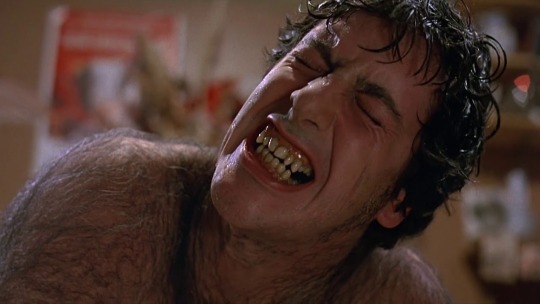
Trying to include a werewolf in your story often causes an expectation they will transform for your audience. You have a lot of options for this, but once you've committed to one it's said something about the nature of a werewolf.
Painful transformations can make us feel horrified while watching it, and hope we never endure that kind of agony (AAWIL);
A swift and controlled change can emphasize the power a werewolf has, making this curse more aspiration (Underworld);
Instances where the transformation is very gradual over days leading up to the moon can be fairly tragic due to the loss of autonomy these characters experience (Silver Bullet).
It can be tempting to commit to an aesthetic, however it's essential to ensure the themes of your werewolf story match it. A werewolf who transforms relatively quickly and painlessly isn't going to mesh with a horrific and tragic narrative. They can still work. For instance, the emphasis on how easy it is to let go of their humanity, to indulge, how hard it is to keep the beast at bay. These are themes you can explore in a quick transformation. Perhaps, full moon changes are slow and painful because the human side is fighting their beast trying to tire it out before it gains control. In that we see a more heroic element to the lycanthrope.
Please reblog with your favourite werewolf transformations! Pretty sure my fav. is from Hemlock Grove, just so visceral!
youtube
#stories#writing#werewolf#werewolves#lycan#lycanthrope#urban fantasy#shapeshifter#monster#an american werewolf in london#underworld#silver bullet#fiction#werewolf fiction#transformation#themes#tropes#writing tropes#creative writing#Youtube
404 notes
·
View notes
Text
KIDD; christmas headcanons
warning/s: mention of sex but no narrative of the actual thing, all fluff!

* kidd knows abt christmas, he just doesn't care 😩
* not until he met you and you wanted THE ULTIMATE christmas celebration with the crew
* he would act annoyed and as if he didn't want to participate in your activities
* but trust me when i say he'll fall in love with you more with the way you're acting like a wife with all the decors and food and gifts
* you'd go and ask him to accompany you when buying stuff, asking him what decors he'd like, he'd say "whatever you want,"
* "you're giving gifts to everyone?
"yeah, something wrong?"
"there's like... fucking thirty of us."
"and???"
* he'd carry the boxes upon boxes of christmas decor, complaining why you bought so much for the ship but will still do it for you
* when you decorate the entirety of victoria and you start getting tired, he'll give you snacks and water and he'll begrudginly help, shouting at the crew to come help you with your bullshit
* garlands across the ship railings, wreaths on each door, bells and lights adorned the edges of the walls. the victoria looked like an ABSOLUTE amusement park kids asked if it was allowed to explore on😭
* he'd be irritated by the festivity and the brightness of his ship, but once he sees you all smiley as you ask him if he loves it, he'll soon grow to love it
* when you tell him about the concept of mistletoes, that man will take advantage of it every chance he gets. you'll just be surprised he'd pin you at random parts of the ship and will kiss you even if you're in the middle of something, even a conversation! it was your msitake in agreeing to entrust him with the mistletoe placements
* since the weather is cold, the crew would add more layers to their once thin outfits. kidd would look so cute with knitted sweaters and a scarf around his neck. just imagine his rosy nose and cheeks when the cold really hits! he'd be asking for more hugs and will really coop up in the blankets ☁️
* he'd also firmly adjusting your beanies, coats, and scarves so you're keeping yourself warm
* he'd catch you playing by the snow
"the fuck are you doing?"
"a snowman?"
"i'd make a better looking one than you i'd bet."
and it'll end up as a snowman-making contest. he wouldn't go easy on you, he'd make his EXTRA EXTRA bigger than you with a punk aesthetic 🥺
* and aaaah christmas movies! you two'd always watch movies in midnight by the deck, sometimes the crew'd join but they'd rather not witness how you two get so touchy with each other. sometimes,,,, movies would either drift you off to sleep or off to sex 😓
* ICE SKATING!! he'd take you to frozen lakes and teach you how to skate! or maybe the other way around! imagine holding his hand as you glide across the snow ❄️
* you'd REALLY persuade him to help you when bakinh, you'd wanna bake with him 😍
"no can do,"
"come ooooon, love. please? for me?"
"...why the hell do i have to do it?"
"because i want to bake with you."
* he'd wear a cute ass apron that belonged to you and it was too big for you but tight for him. but it's manageable, he'd take it if it means you'll giggle when you see him. he'd say he just want to get it over with
* but imagined how he'd knead the dough tho 👀 those arms i mean hooooo. he'd catch you staring by telling you that the pastries in the oven are burning even tho you just slid them in there a few minutes ago
* he'd be soooo focused on decorating tho it's the cutest thing 😍 just imagine he'll be asking for a chair so he can work at "maximum efficiency" as he says. he'll be stoked in putting funny/evil faces and designs on the cupcakes and cookies
* you two'd reach until super late at christmas eve baking stuff before it struck midnight
* you'd be surprised he's got you a gift! it'd be a whole bunch of things; he'll brush it off as he doesn't know what to get you so he got everything🥺. there'd be knicknacks and jewelry he made, perfume and cosmetics, and clothes he'd love on you (lingerie, tight dresses, and anything that highlights your figure 🤭). but what you love the most is the tiny, knitted tulip plush that was about the size of your palm he personlly handcrafted for you 😫, it was a bit loose but other than that it looks flawless! he'd later tell you he's been practicing since the start of december 🥺😭

MERRY CHRISTMAS MY LOVES!! let's all celebrate with our faves 🎄🌷 here's my gift to you!
#anime#manga#one piece#eustass kidd#cha writes#one piece headcanons#one piece x reader#eustass kid#eustass kidd x reader#eustass kid fluff#eustass kid headcanons#eustass kid x reader#eustass kidd x y/n#eustass kidd headcanons#one piece eustass kid#eustass captain kidd#eustasscaptainkid#eustass x reader#eustass kidd x you#one piece x y/n#one piece scenarios#eustass kid x y/n#eustass kid x you#one piece fluff
176 notes
·
View notes